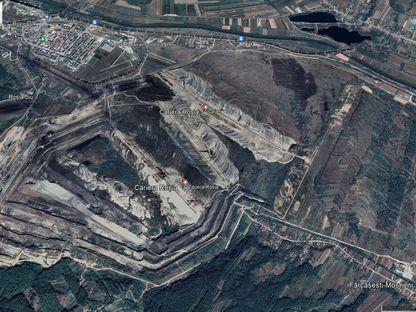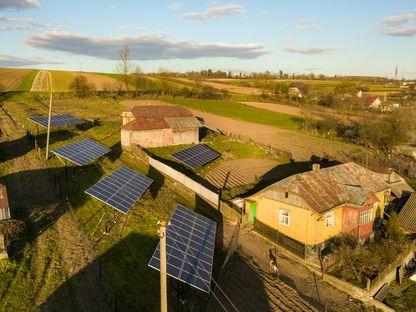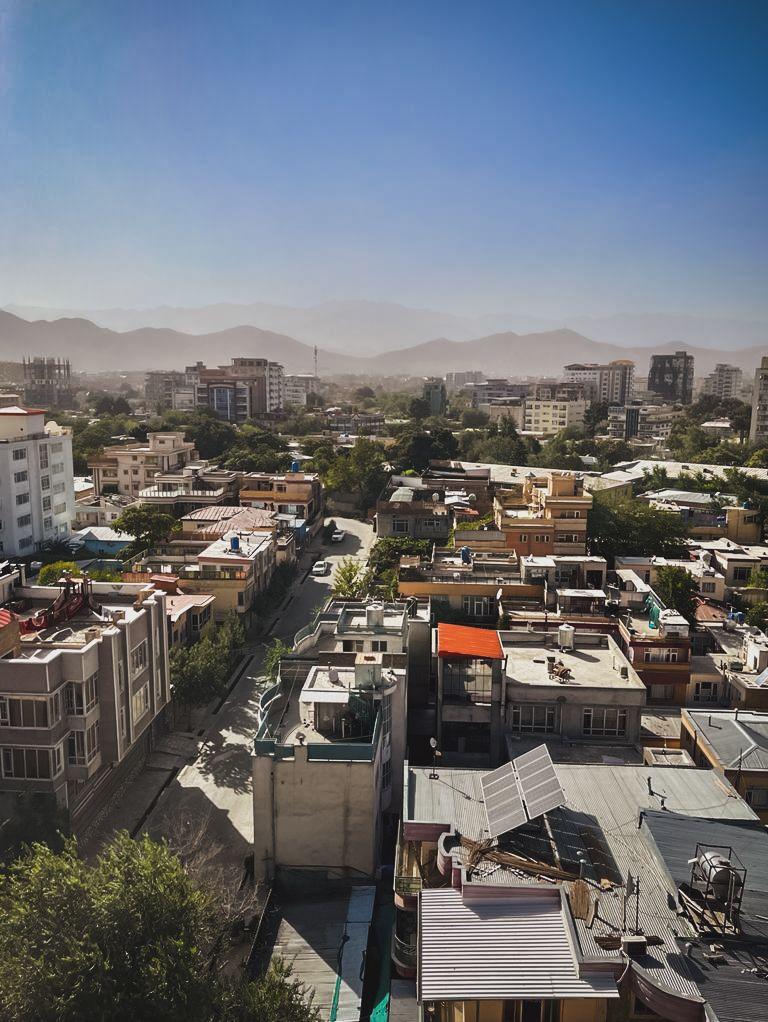Women in Afghanistan have lost their freedom since the Taliban took over a year ago.
One year after this event, we paid a visit to a country where the hopeful women of the past are now living in hiding.
Women in Afghanistan have lost their freedom since the Taliban took over a year ago.
One year after this event, we paid a visit to a country where the hopeful women of the past are now living in hiding.
One Year of Taliban Rule in Afghanistan. "Our only fault is that we are women"
English Section
14/08/2022
The woman who was hunting islamists and terrorists just a year ago in Afghanistan kneels on the carpet in an unadorned room on the outskirts of the capital Kabul. She spends most hours of the day here, hidden from prying eyes. Her identity must remain secret. Zahra Sama, former prosecutor, (name changed, in order to protect her) fears for her life.
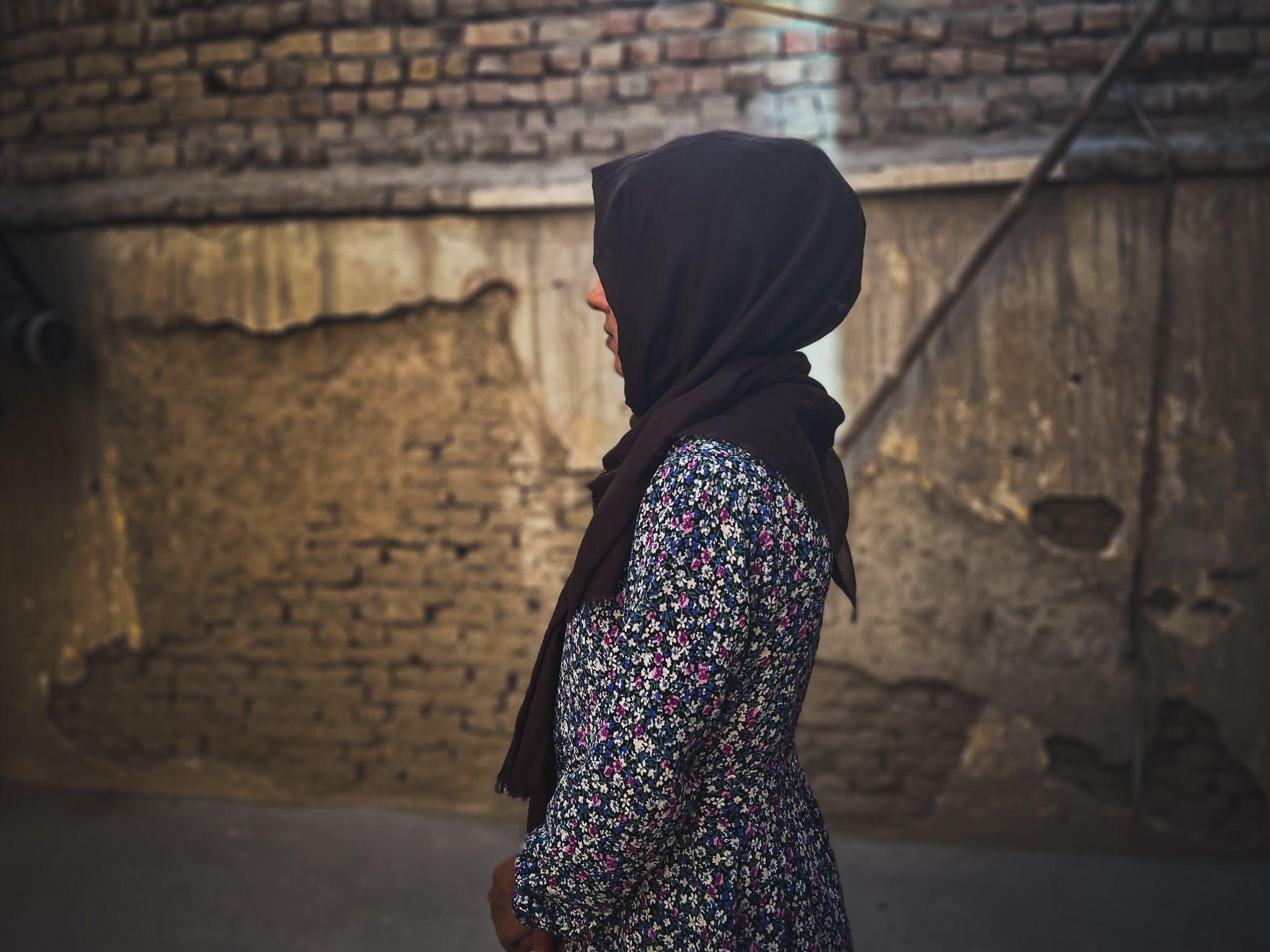
Zahra Sama, prosecutor
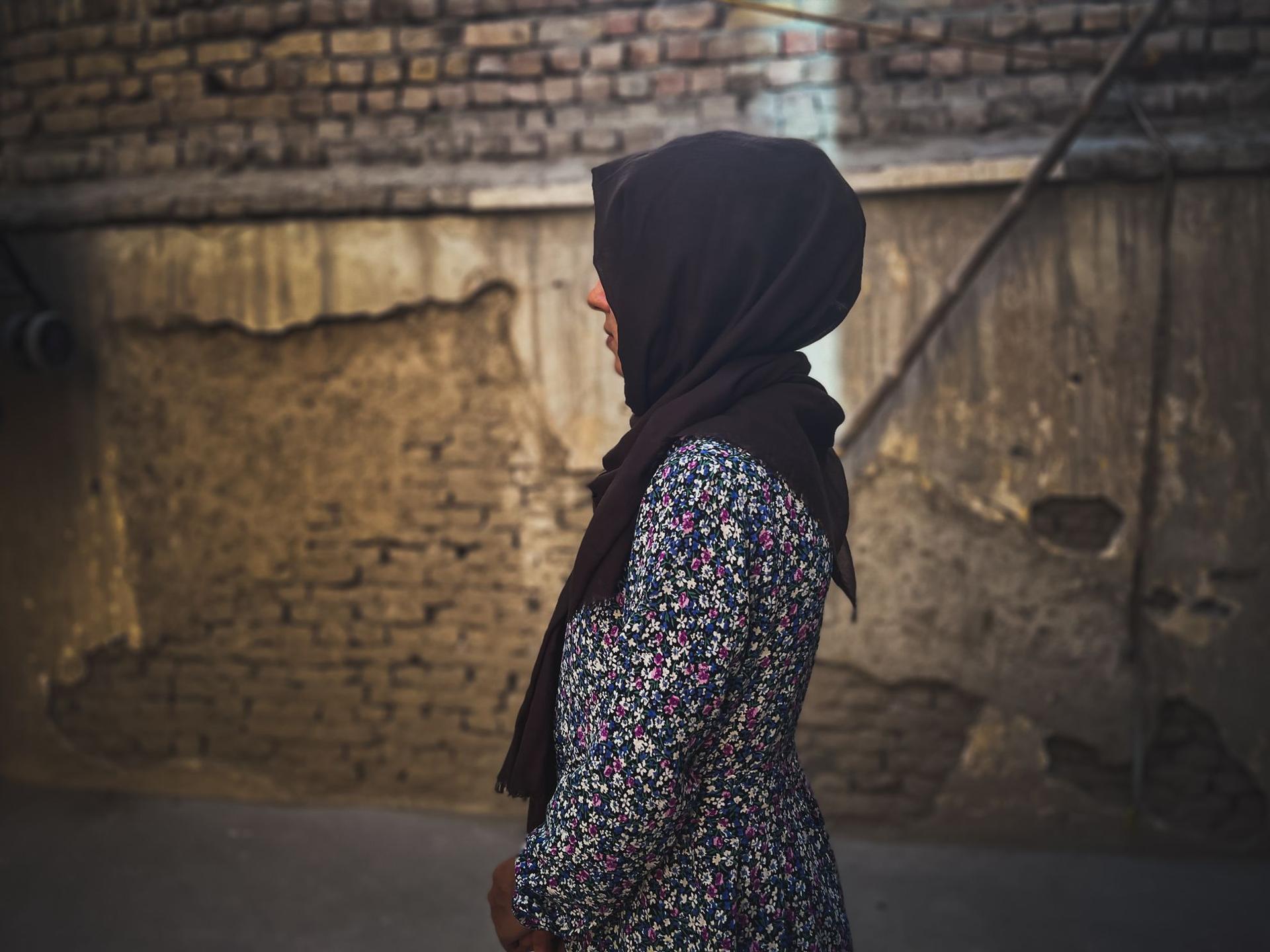
Zahra Sama, prosecutor
On the day that was to change Sama's life, Afghan history took a new course. On August 15, 2021, the Taliban captured the capital. They freed numerous inmates from Afghanistan's largest prison, reportedly including their own comrades-in-arms and members of other terrorist groups. And Sama got an anonymous phone call.
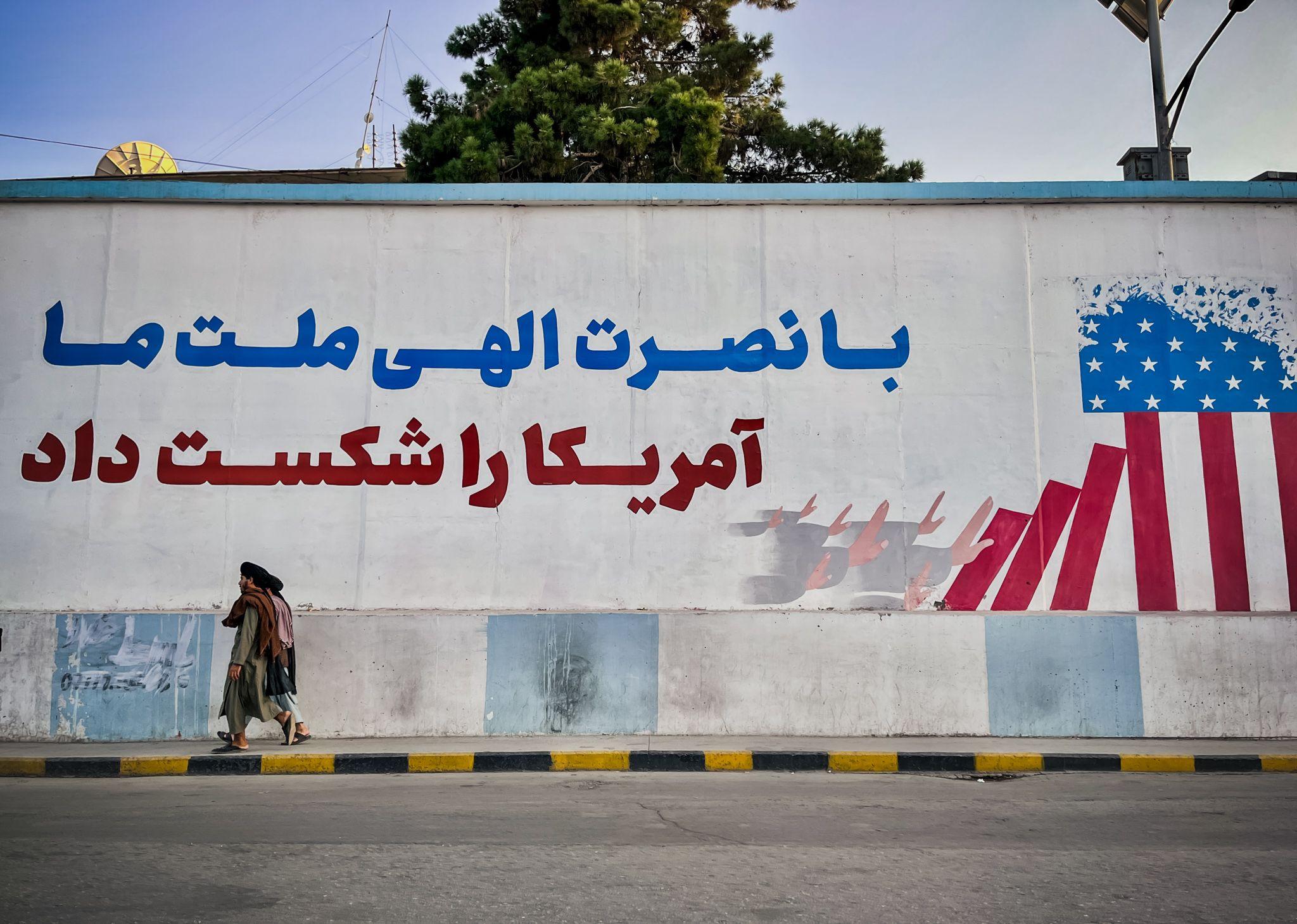
"With the blessing and support of Allah, we beat the American nation"
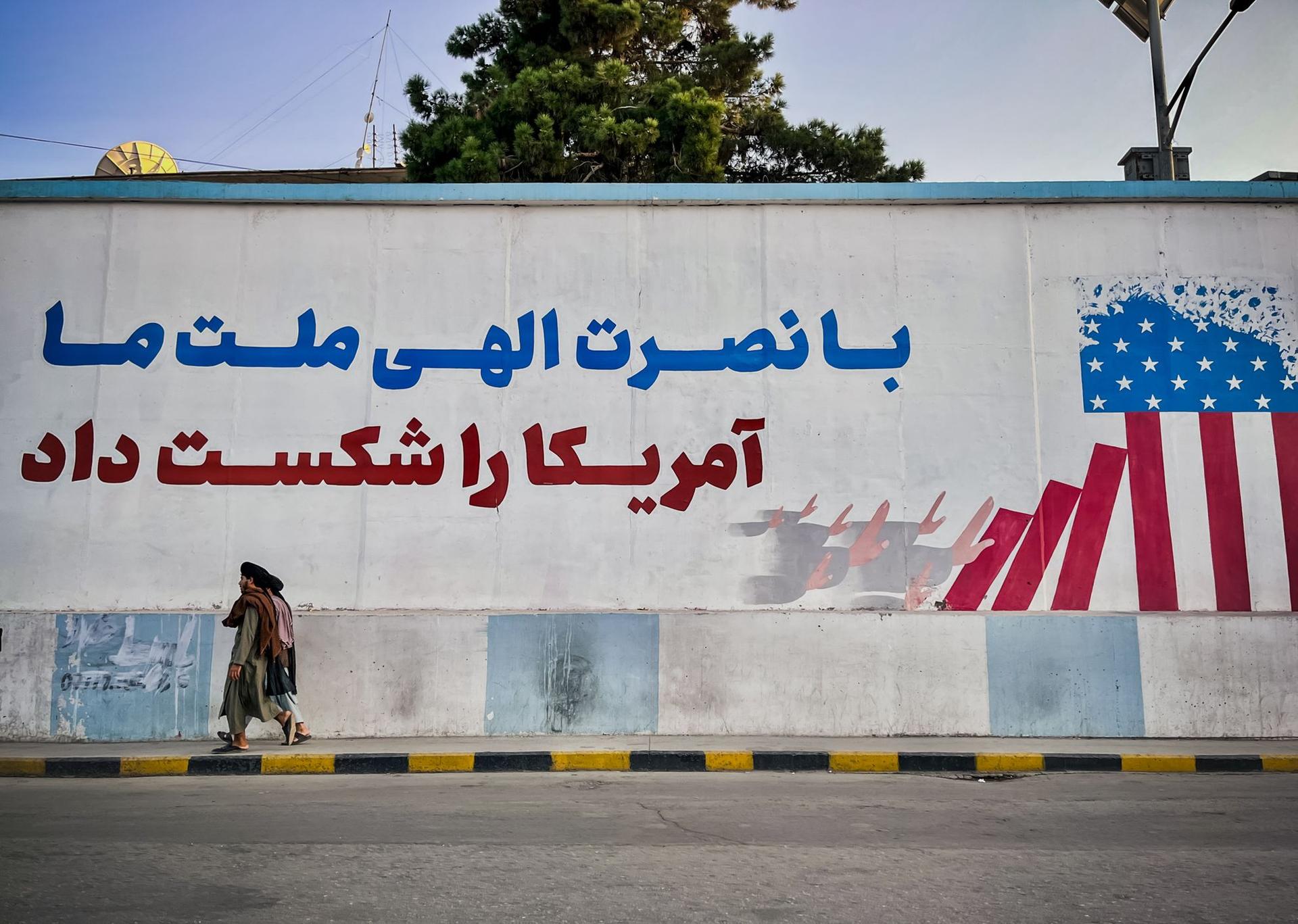
"With the blessing and support of Allah, we beat the American nation"
"Now our people are in power," a man's voice said. "The city is ours. We will find you." Sama suspects the caller was one of the criminals she had put in prison and who was now at large - seeking revenge. Although the Taliban have declared a general amnesty for associates of the former government, there have been repeated reports of extrajudicial killings. The Taliban government denies such cases.
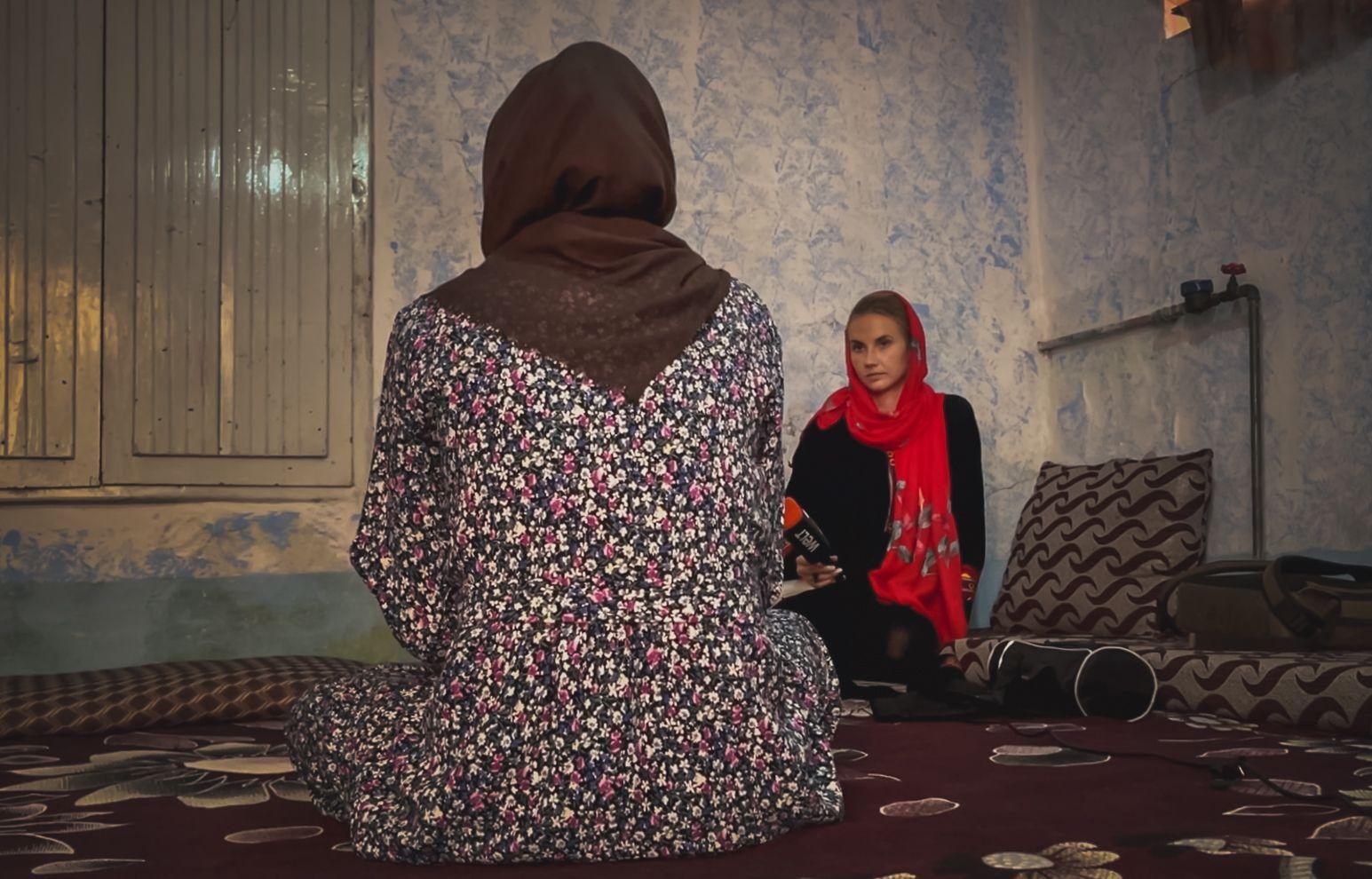
Zahra Sama, prosecutor
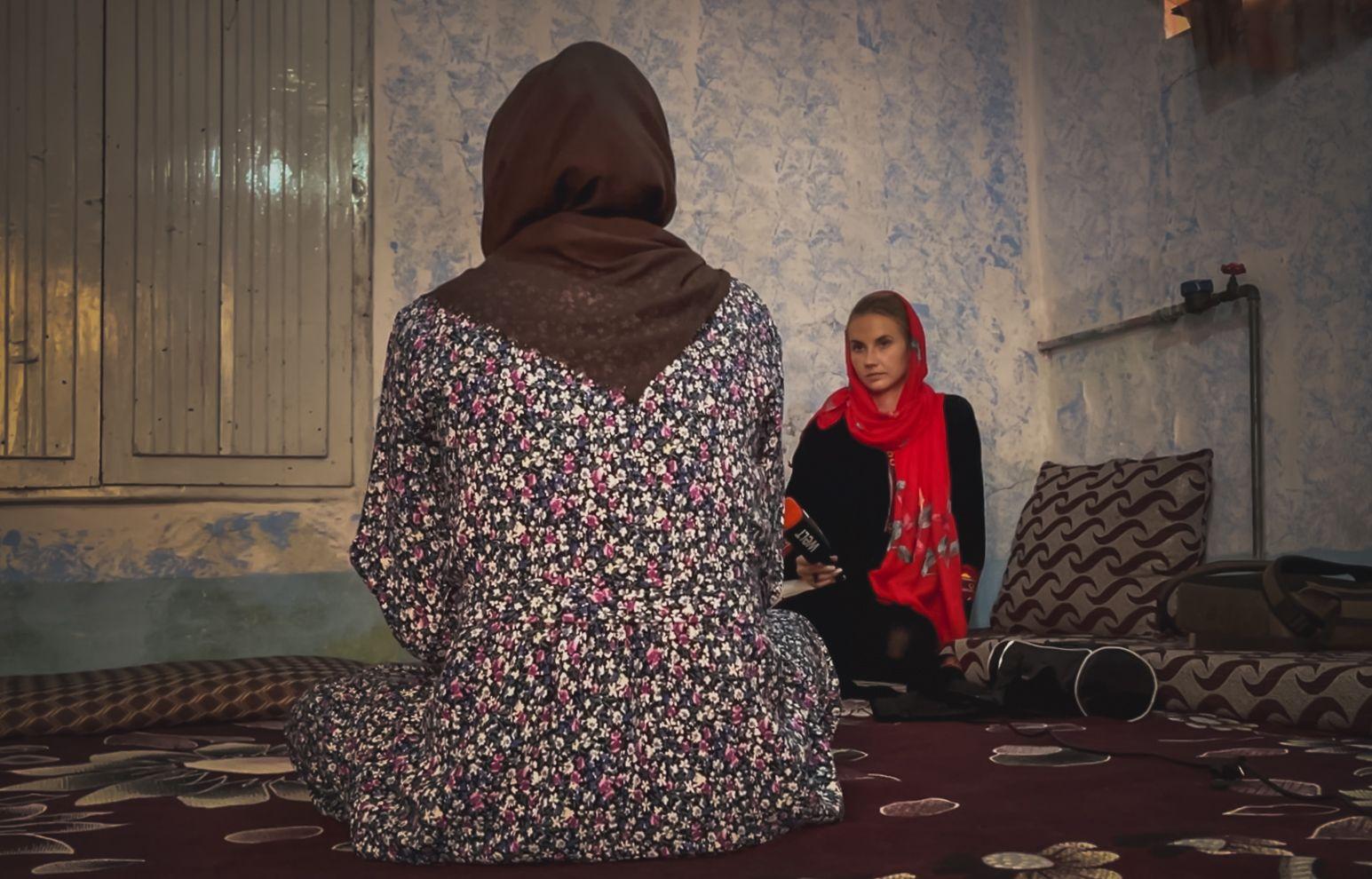
Zahra Sama, prosecutor
Sama and her family went into hiding, first with a relative, later with friends. The now unemployed prosecutor wanted to leave the country alongside the foreign diplomats and soldiers. At first, she made an effort with the British, who had once trained her in investigative techniques. The attempt failed when ISIS committed an attack on Kabul airport.
Mulți ne citesc, puțini ne susțin. Fără ajutorul tău, nu putem continua să scriem astfel de articole. Cu doar 5 euro pe lună ne poți ajuta mai mult decât crezi și poți face diferența chiar acum!
Two days later, London stopped its evacuation mission - and Sama set up her life underground. To this day, she hopes for a promise of admission from a Western government. "I don't only care about myself," Sama says. "I am the reason my family is in danger. For them, I want a safe place and peace of mind."
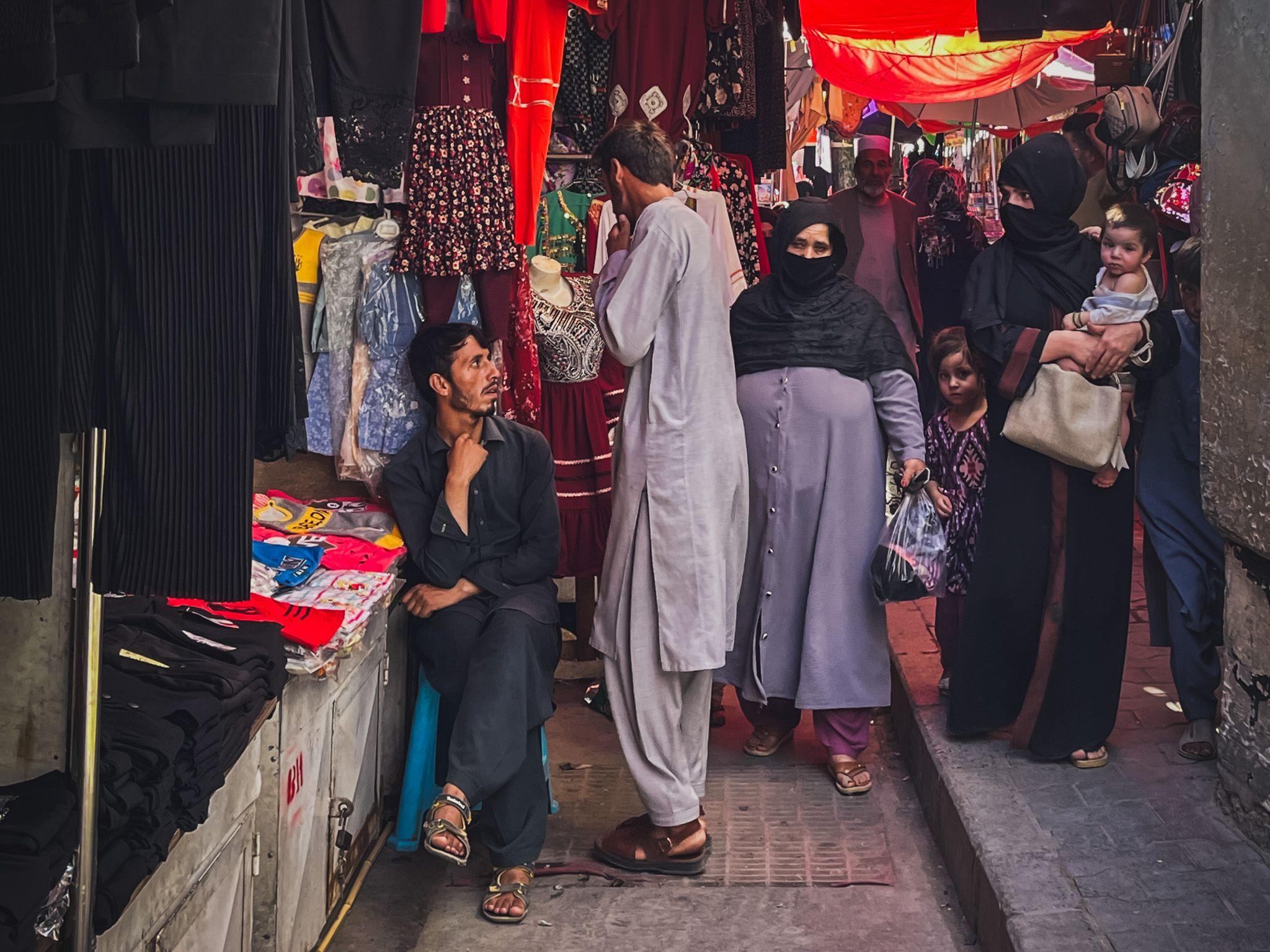
Street market in Kabul
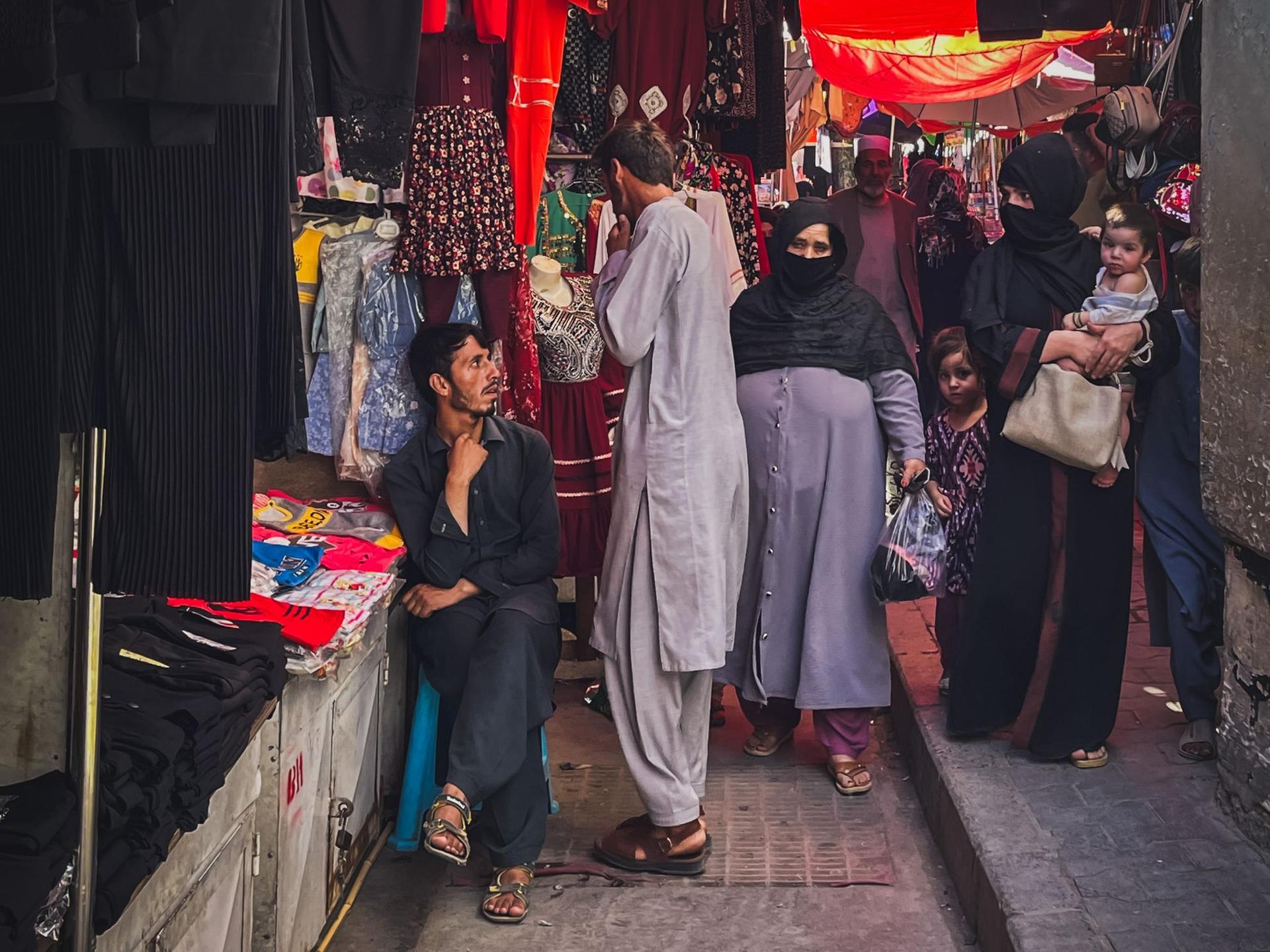
Street market in Kabul
When walking the streets of Kabul, I notice two things. The first is the number of beggars. Women in light blue burkas, their face entirely covered by cloth, are reaching out their arms, hoping for a few Afghanis. Boys and girls, six, seven years old, knocking on windows of cars stuck in a traffic jam.
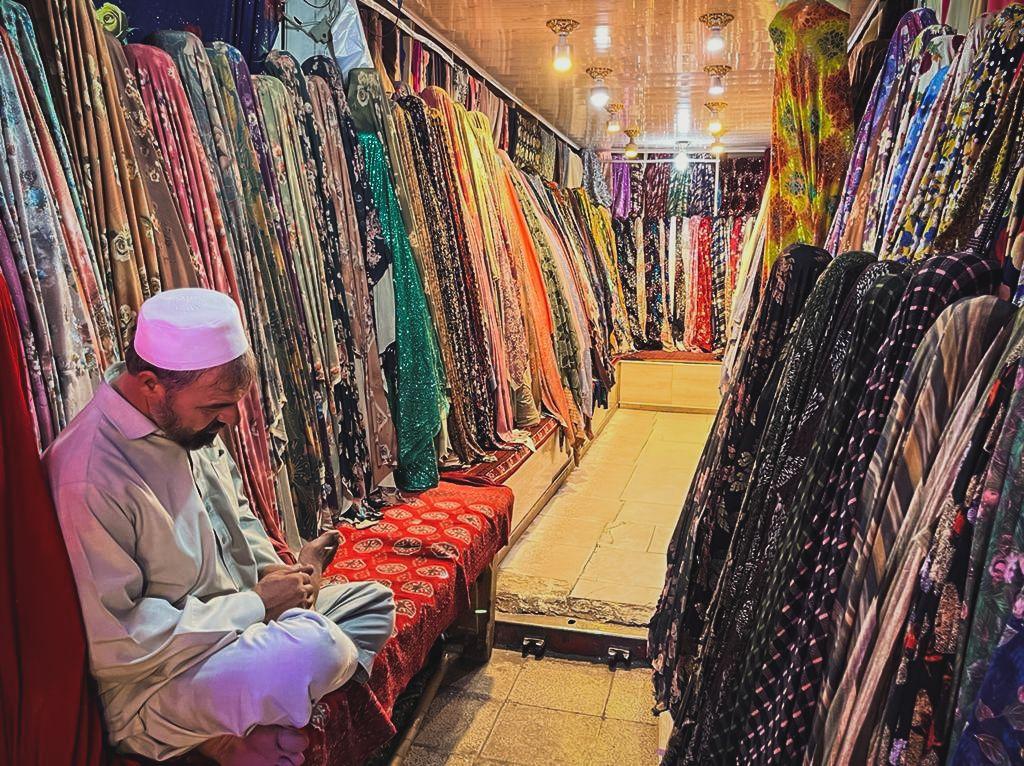
Street market in Kabul
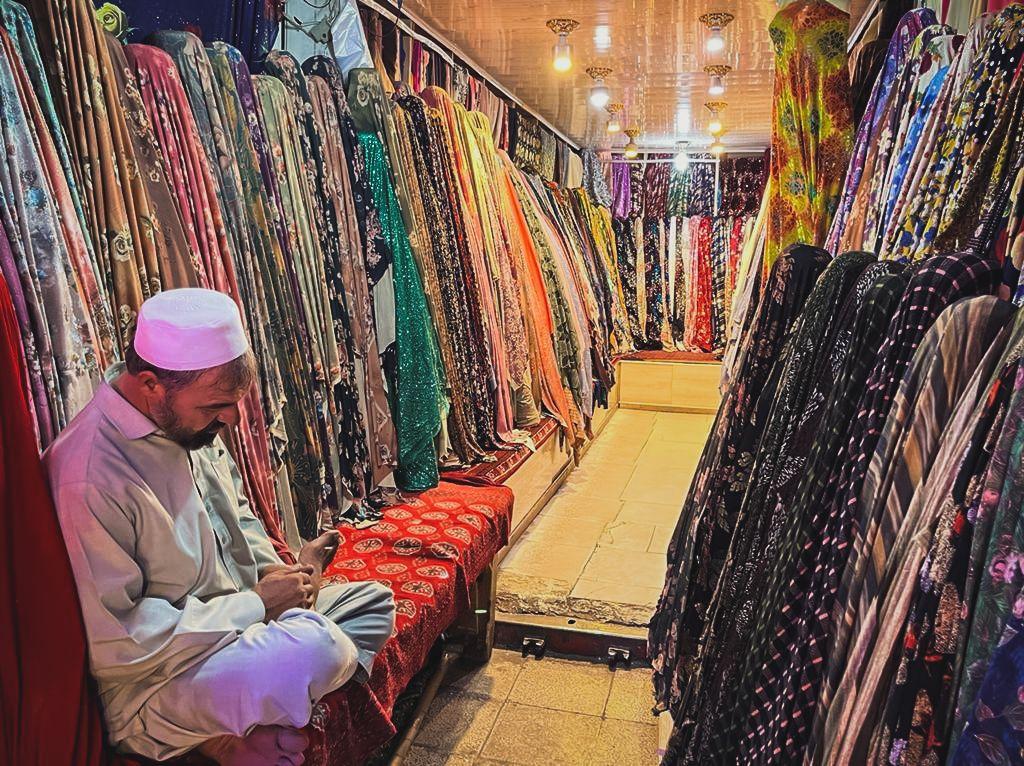
Street market in Kabul
Coal Mining Expansion Leads to Deforestation: Over 470 Hectares of Forest Cut Down in Gorj, Romania
Over the past six years, more than 470 hectares of national forest land have been allocated by the government, without compensation, to the Oltenia Energy Complex (CEO) for the expansion or opening of new coal mines.
The not-so-green Romania. The state delays settlements for photovoltaic panels by 2 years
PressOne reviews the main dysfunctions in the production, consumption and distribution of energy from renewable sources, as revealed by discussions with consumers and data provided by official sources at the request of our editorial office.
Afghanistan is facing a humanitarian crisis that has been intensifying in the past months. The economy is in a bad shape after the Taliban took over; international sanctions are complicating foreign aid. And yet, people are so friendly. Almost everyone I talk to invites me to dinner with their family after, which I mostly respectfully decline.
Having the thought of how the west abandoned Afghanistan after 20 years in the back of my mind, I almost feel ashamed.
The second thing is the women. Before coming to Afghanistan, I frantically searched numerous online shops for modest dresses in accordance with the requirements of the Taliban. Officially, they are asking women to cover their faces – but in Kabul, the capital, the rule hasn’t been enforced, at least not in everyday life.
Un newsletter pentru cititori curioși și inteligenți.
Sunt curios
All around me, I see young women with perfect make-up and carefully pedicured feet, in high-heel sandals. Their headscarves sometimes only cover the backs of their heads, hair strands framing their faces. The Taliban don’t seem to mind, at least not yet. I quickly learned to ditch my mud-coloured scarf and buy a beautiful red one with traditional Afghan embroidery.
Those who can afford it, have lunch in one of Kabul’s hipster restaurants. The latest trend in interior design is plants, loads of them, covering the ceilings and lining the tables. Young men smoke shisha, girls open their abayas, revealing chic blouses and jeans. If I didn’t know I was in Kabul, I could be as well in Bucharest or Berlin.
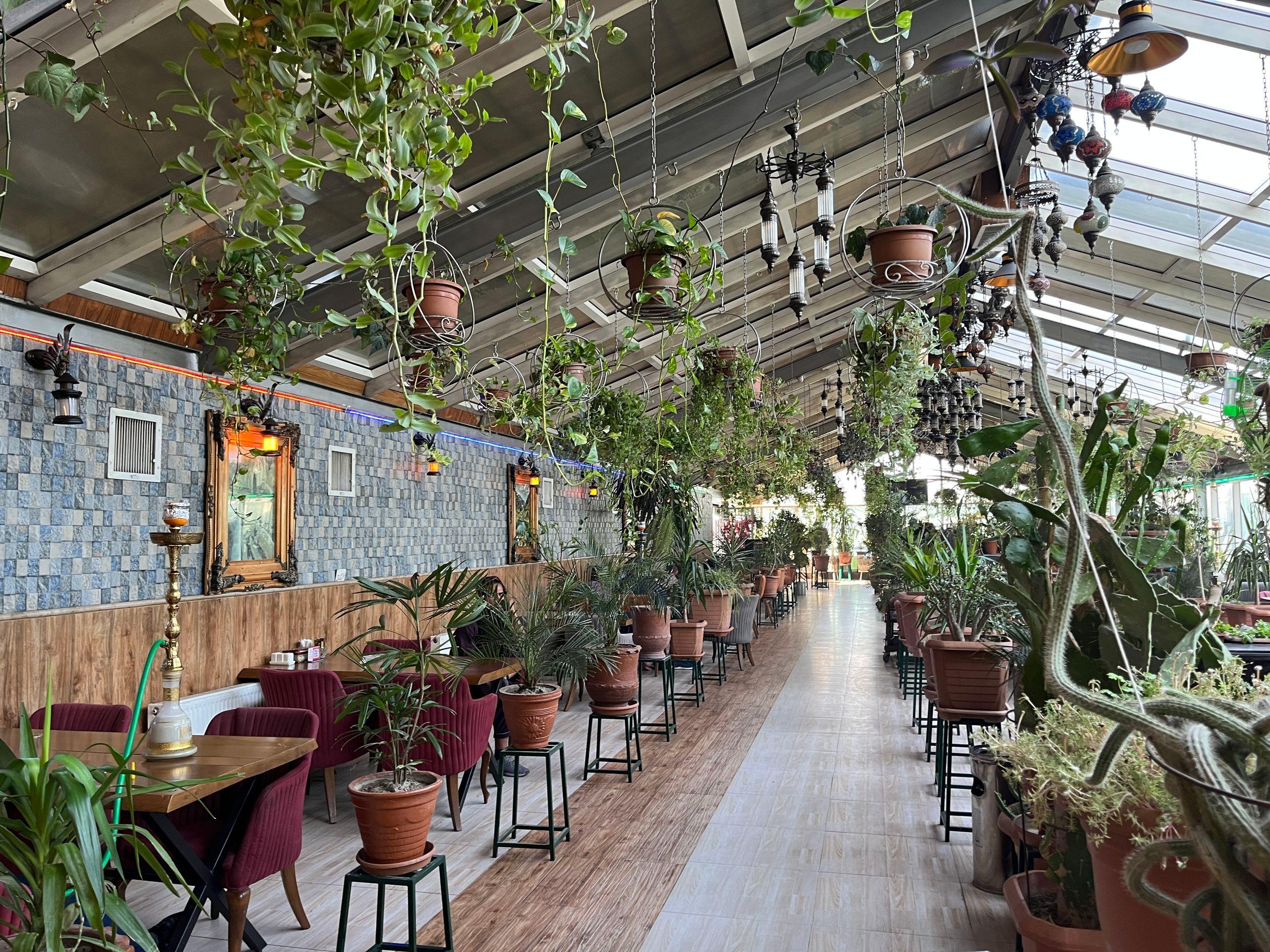
An elegant restaurant in Kabul
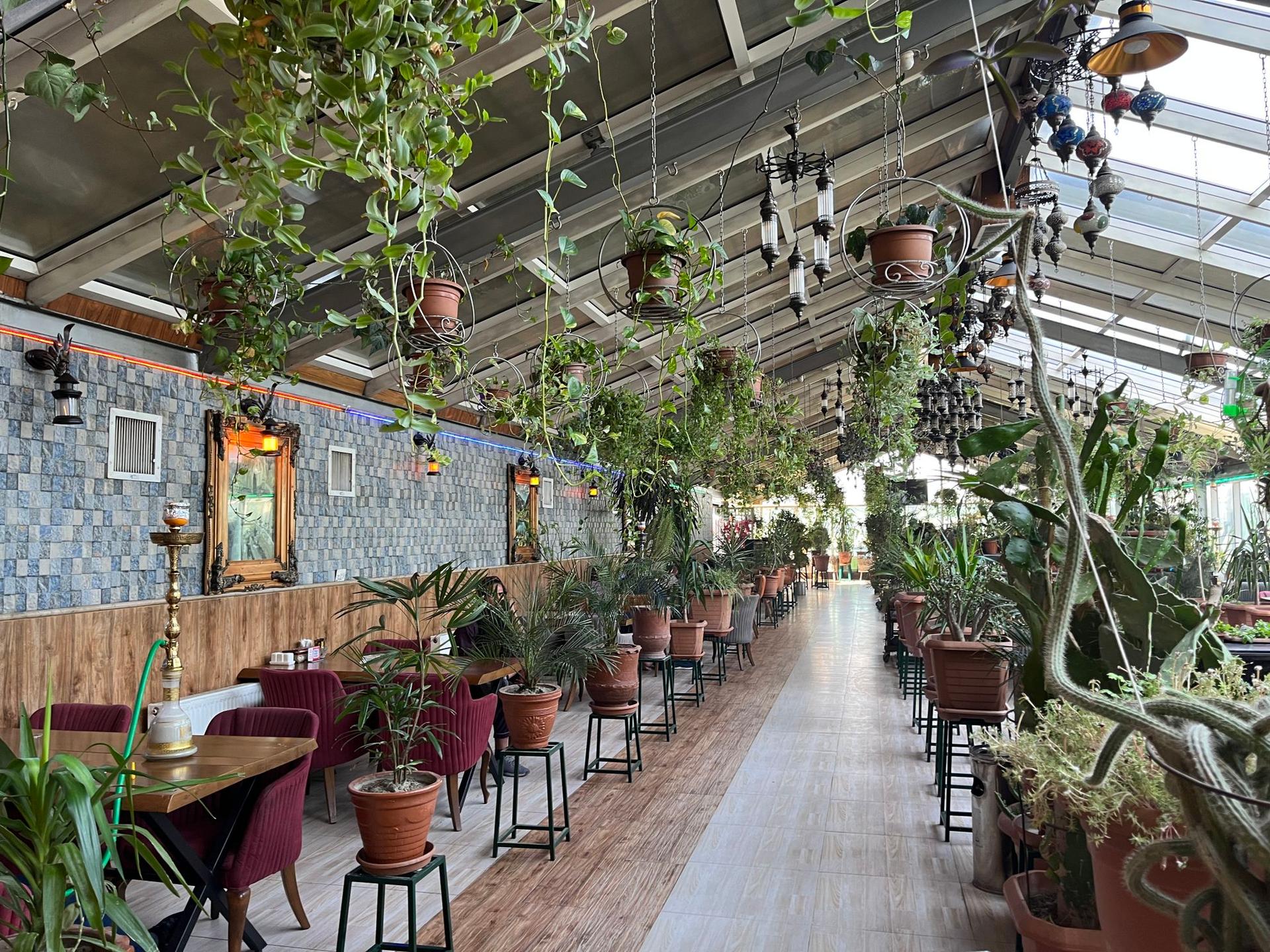
An elegant restaurant in Kabul
On other occasions however, the Taliban are showing the face that the world has learned to fear them for. When a women’s protest is taking place, they fire in the air with their rifles, they forcibly disperse the gathered crowd, they arrest journalists and keep them detained for hours. Journalism has some red lines under the Taliban. They don’t like critical reporting. The problem is, you never know where the red line is. It keeps changing with every individual Taliban officer and their mood.
The Taliban deny that they exclude women from the workforce. "In the areas where women are needed, they work," Taliban spokesman and Deputy Minister of Information and Culture Zabiullah Mujahid says.
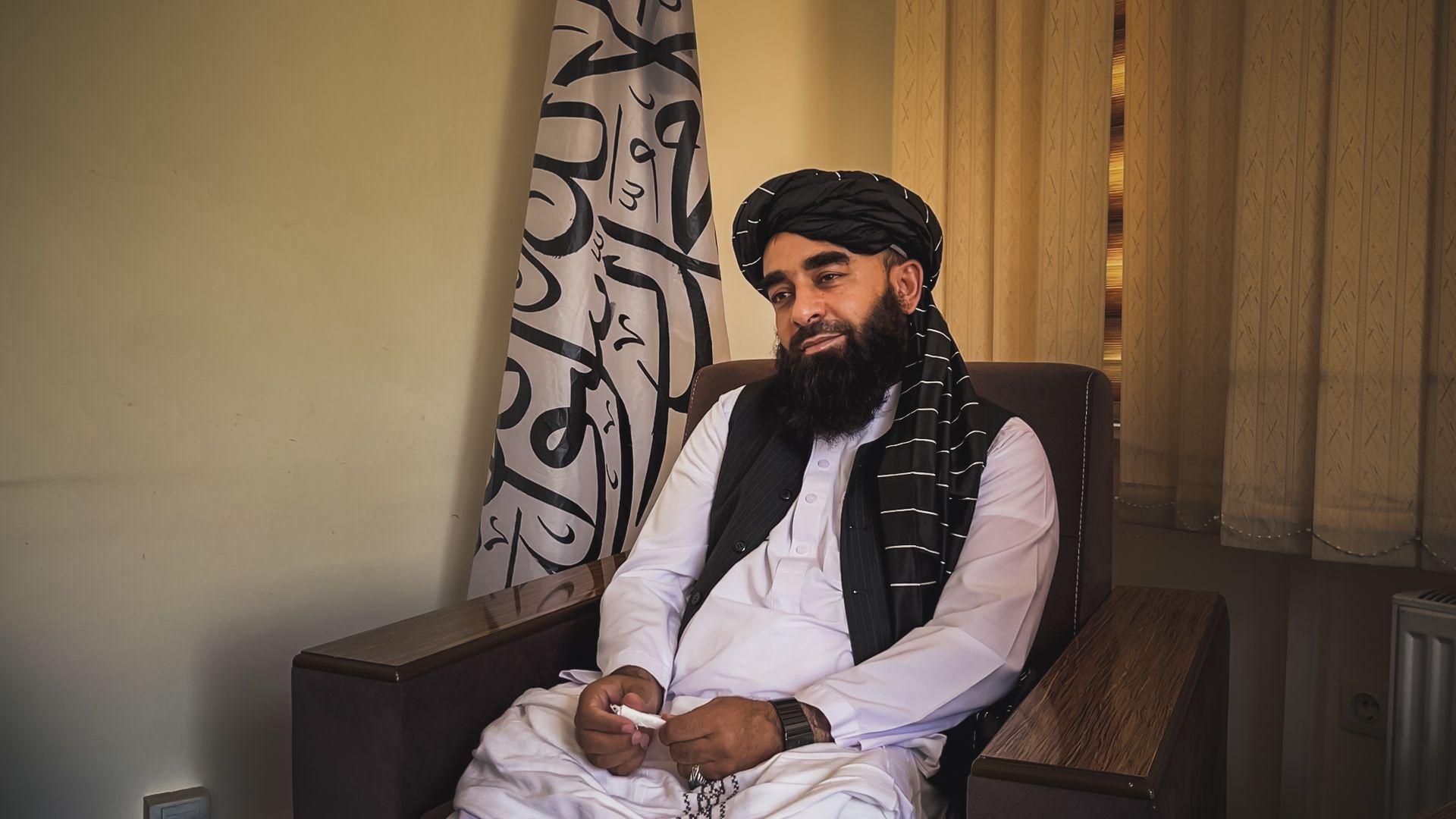
Zabihullah Mujahid, Taliban spokesman and Deputy Minister of Information and Culture
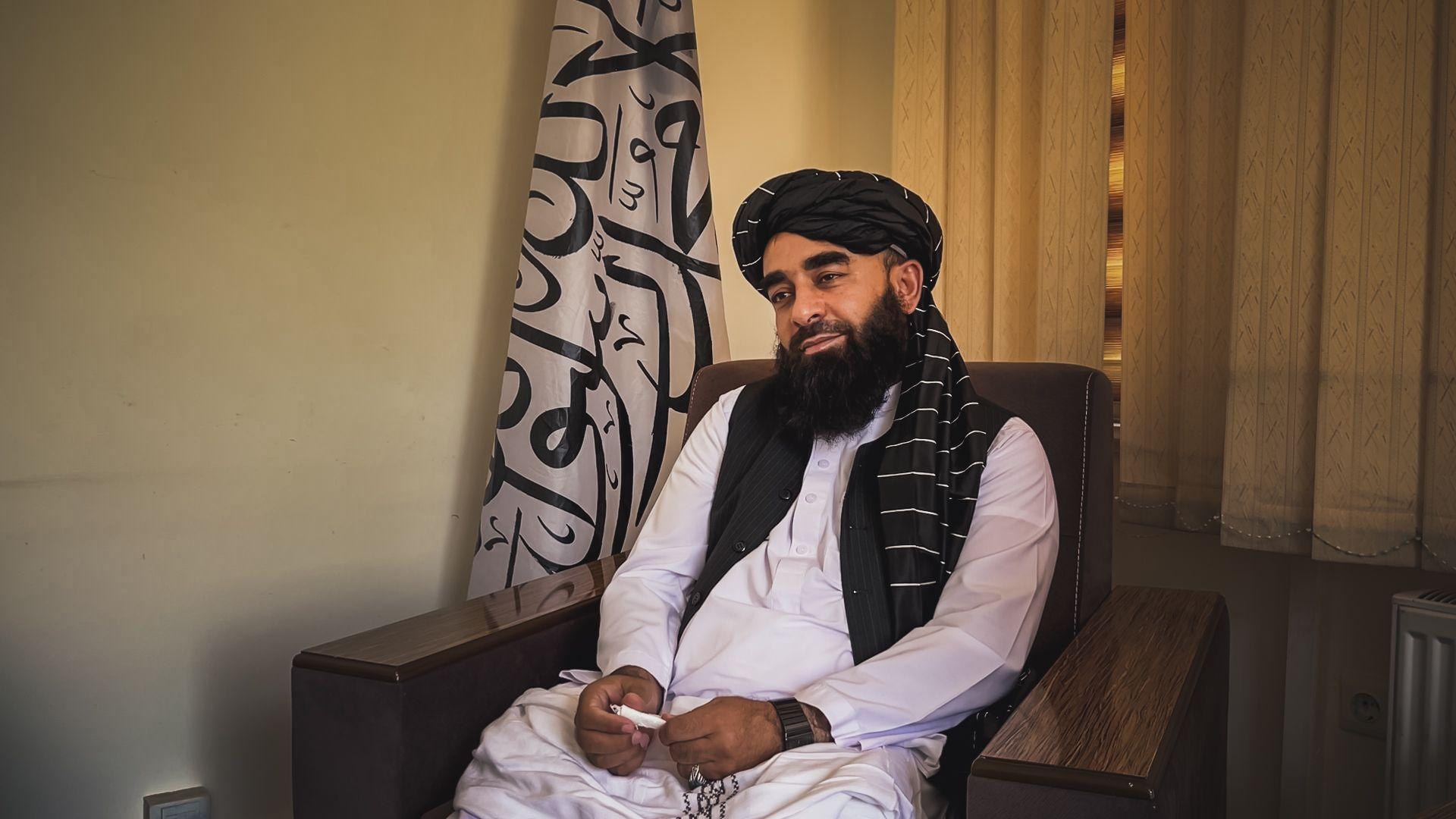
Zabihullah Mujahid, Taliban spokesman and Deputy Minister of Information and Culture
"In every other area where a woman is needed, we will hire them too, for example in higher education, education and health sectors, police, prisons, passport control and airports."
In the Islamic Emirate's workforce, there is room for women where they are with other women - within narrow limits, as part of gender segregation.
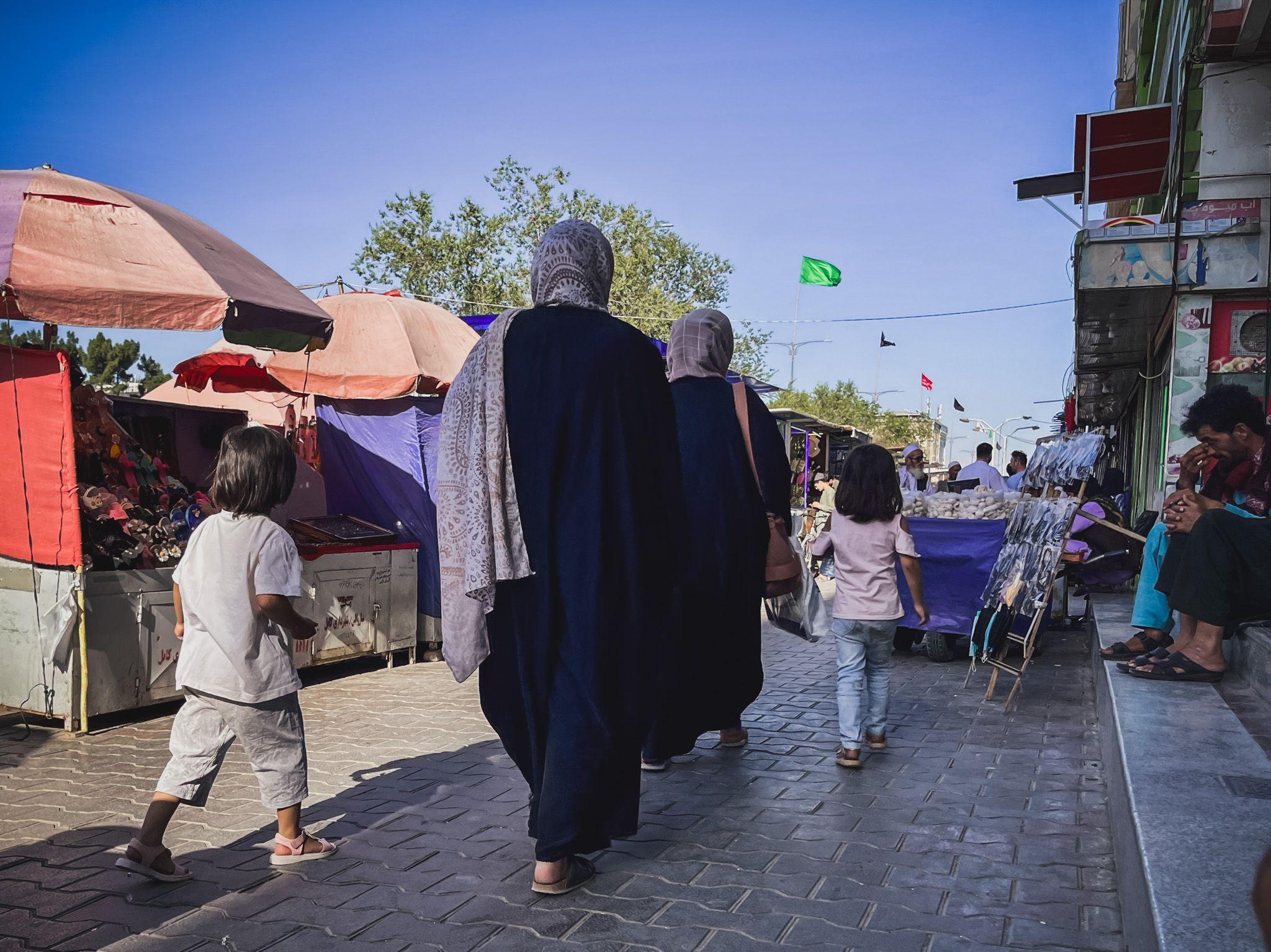
On the streets of Kabul, women only walk in burkas and abayas, and only accompanied
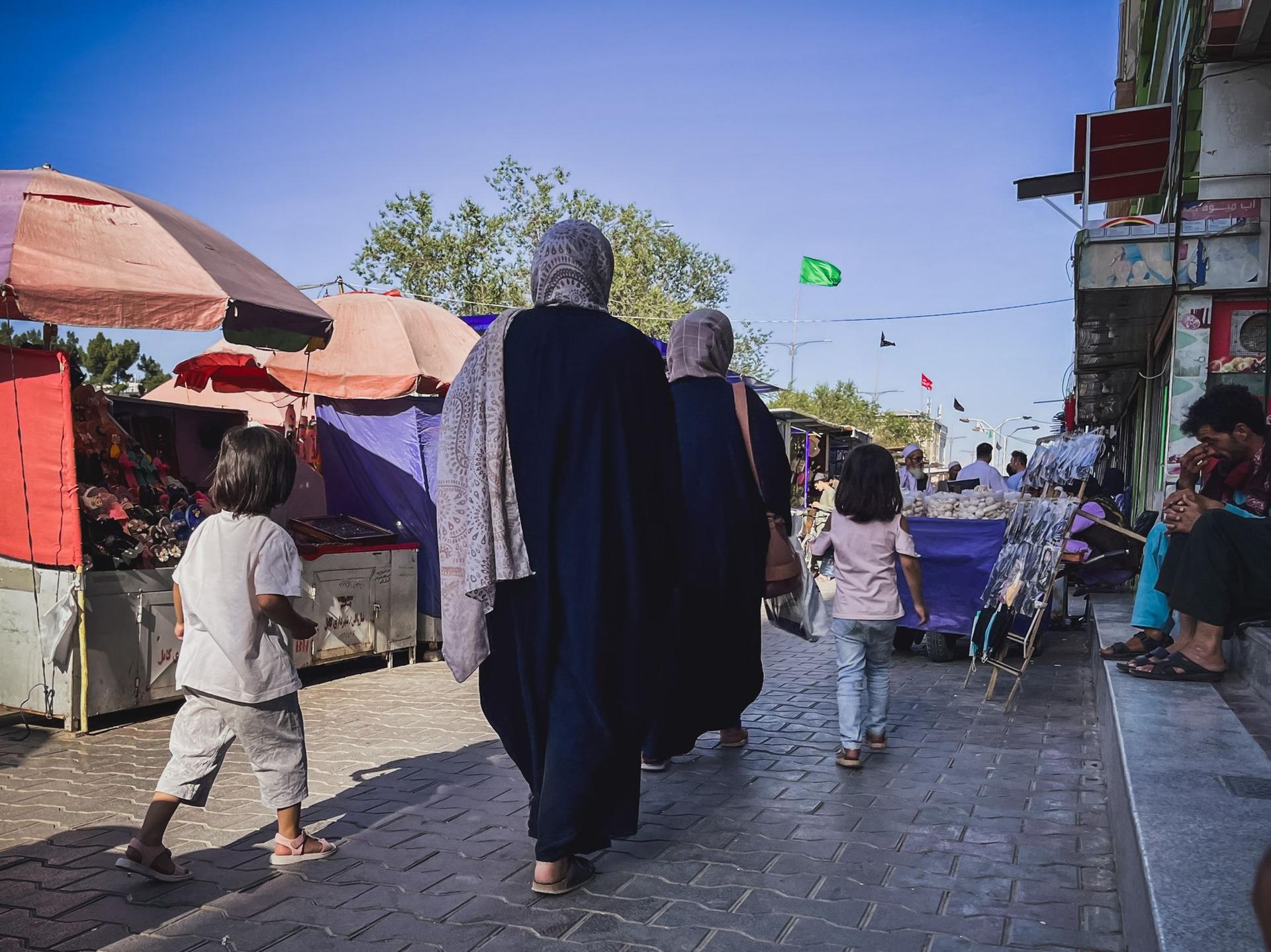
On the streets of Kabul, women only walk in burkas and abayas, and only accompanied
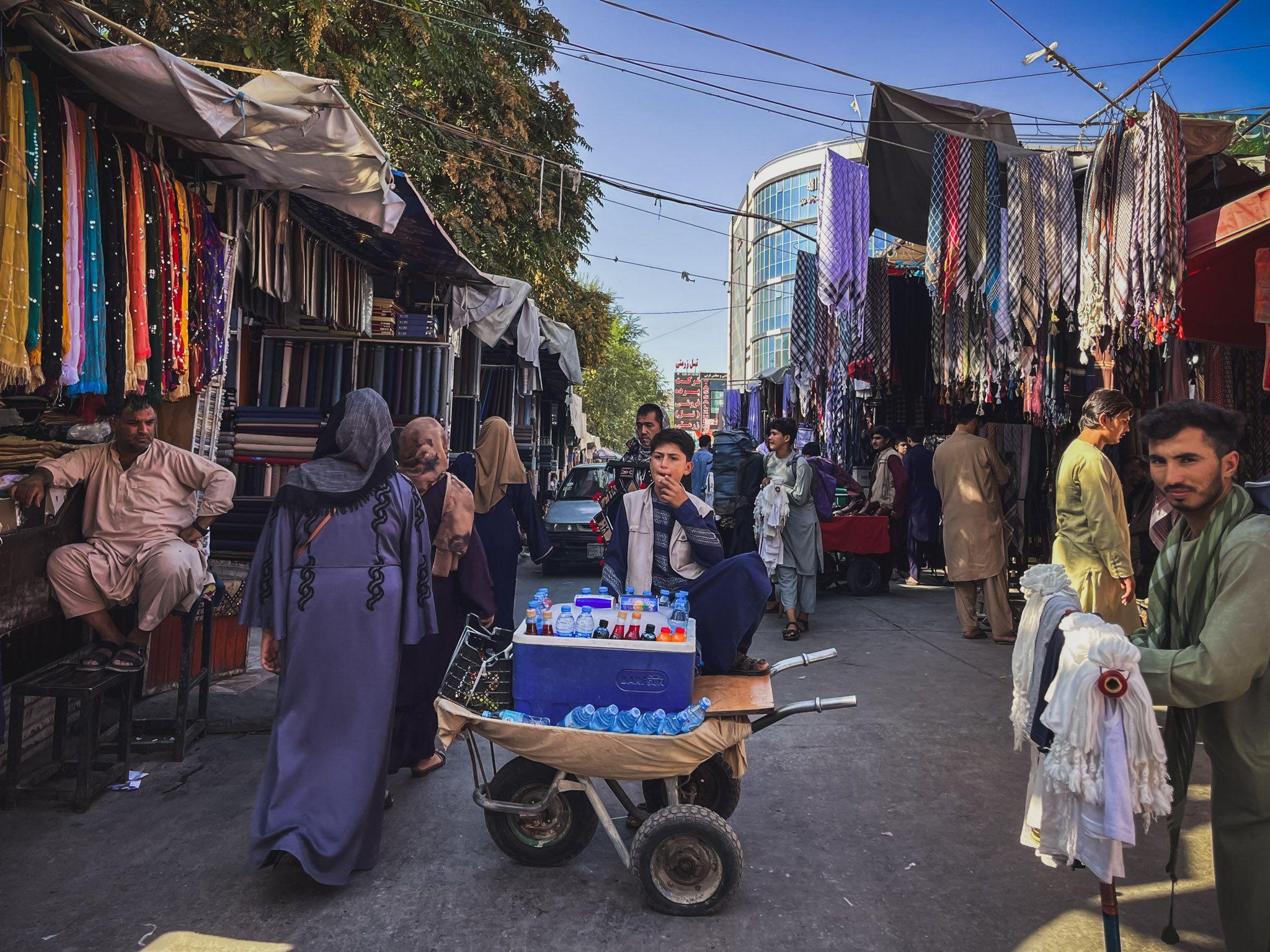
Street market in Kabul
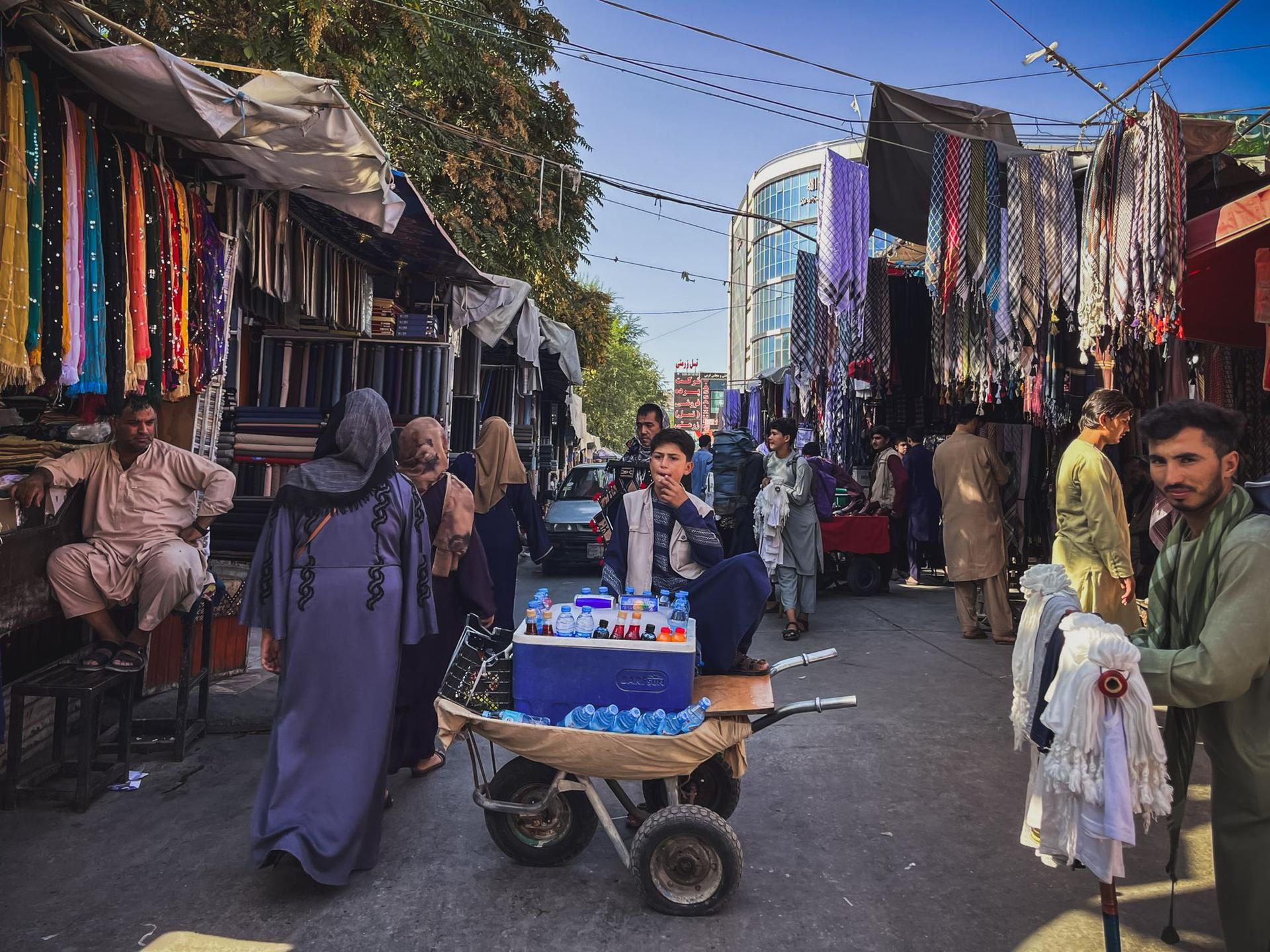
Street market in Kabul
Meanwhile, in large parts of the country, schools for girls in seventh grade and above have been closed for a year, despite promises to the contrary.
The Taliban justify this on religious and cultural grounds. "Afghanistan is not only made up of the cities, but also of large tribes and a large number of people in the mountains," says Bilal Karimi, the government's deputy spokesman.
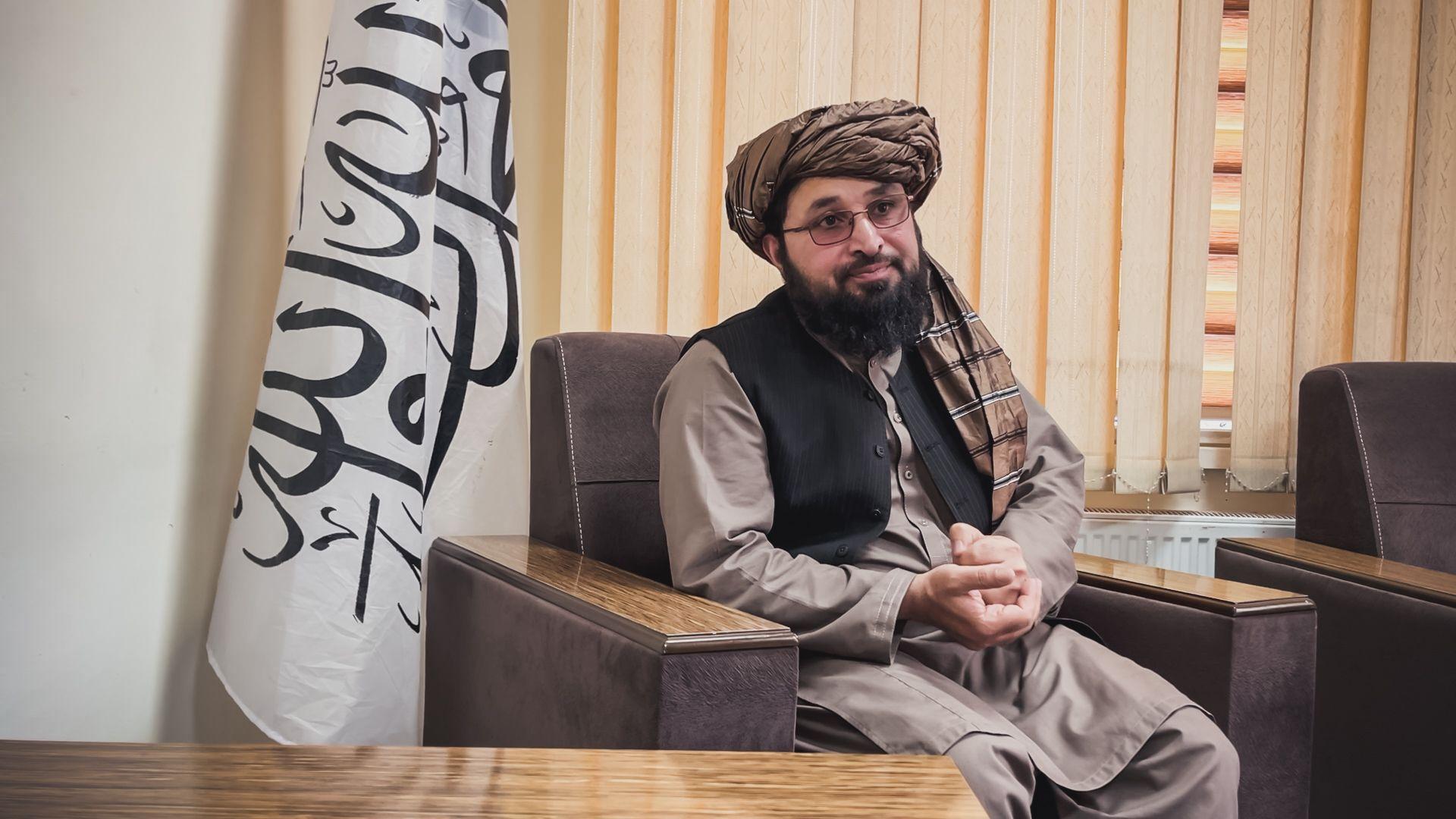
Bilal Karimi, the Taliban government's deputy spokesman.
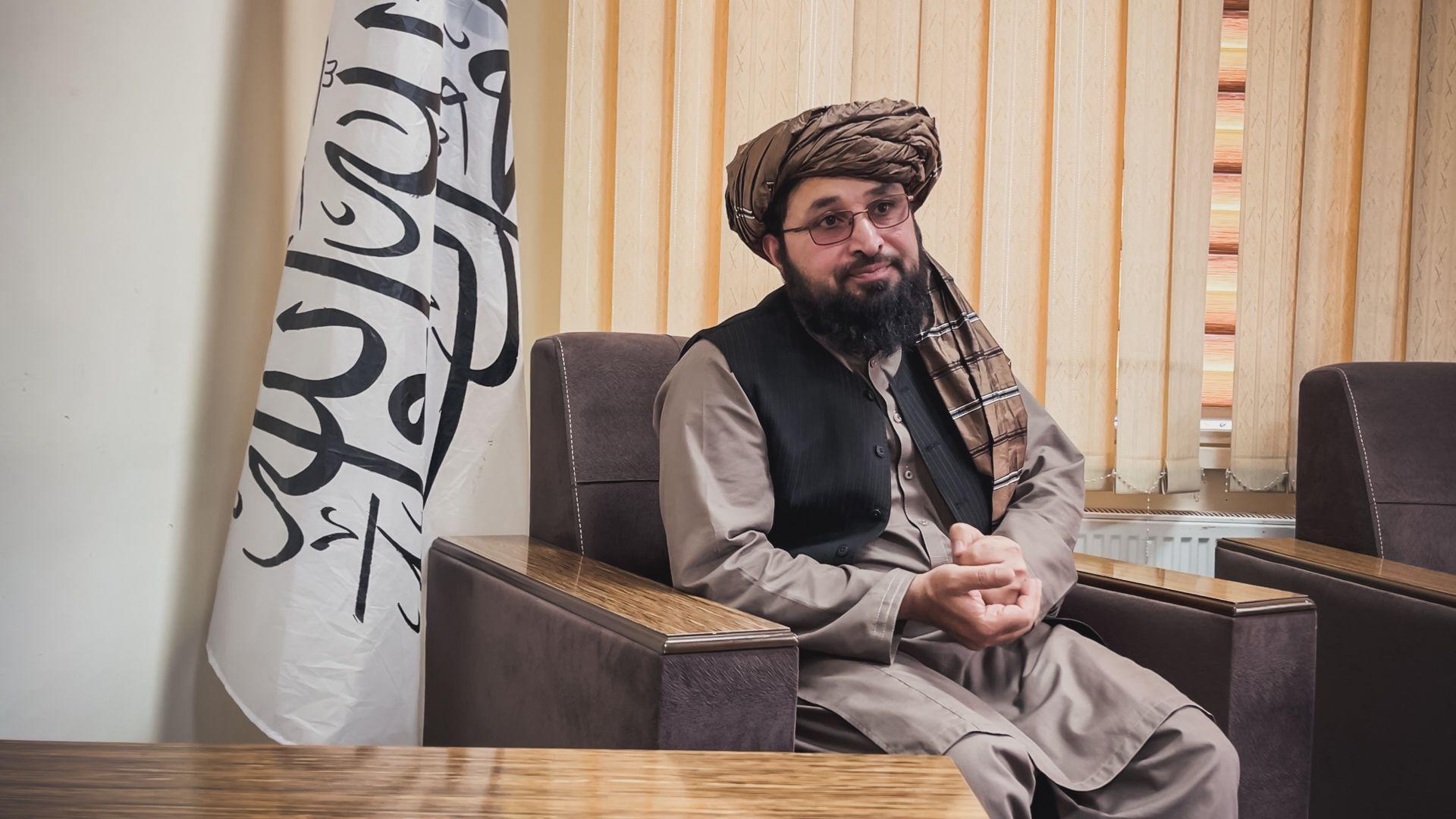
Bilal Karimi, the Taliban government's deputy spokesman.
"These people have their own demands based on religious precepts. After assessing their demands and desires for the future system, we can get a result," he says. In the end, he says, schools will be reopened for girls. When asked, he does not give an exact timetable.
It is true that Kabul has always been a place of the privileged, the modern, the visionary.
"To a certain extent, women's rights thrived in Kabul. But many of these values were confined to the capital," says Ibraheem Bahiss of the International Crisis Group.
In the countryside, the strict rules of a conservative society prevailed, even without the Taliban. And yet: since the Islamists have been in power, they deprive all women of their freedom rights - even those like Sama, who grew up believing they could achieve anything they aspired to.
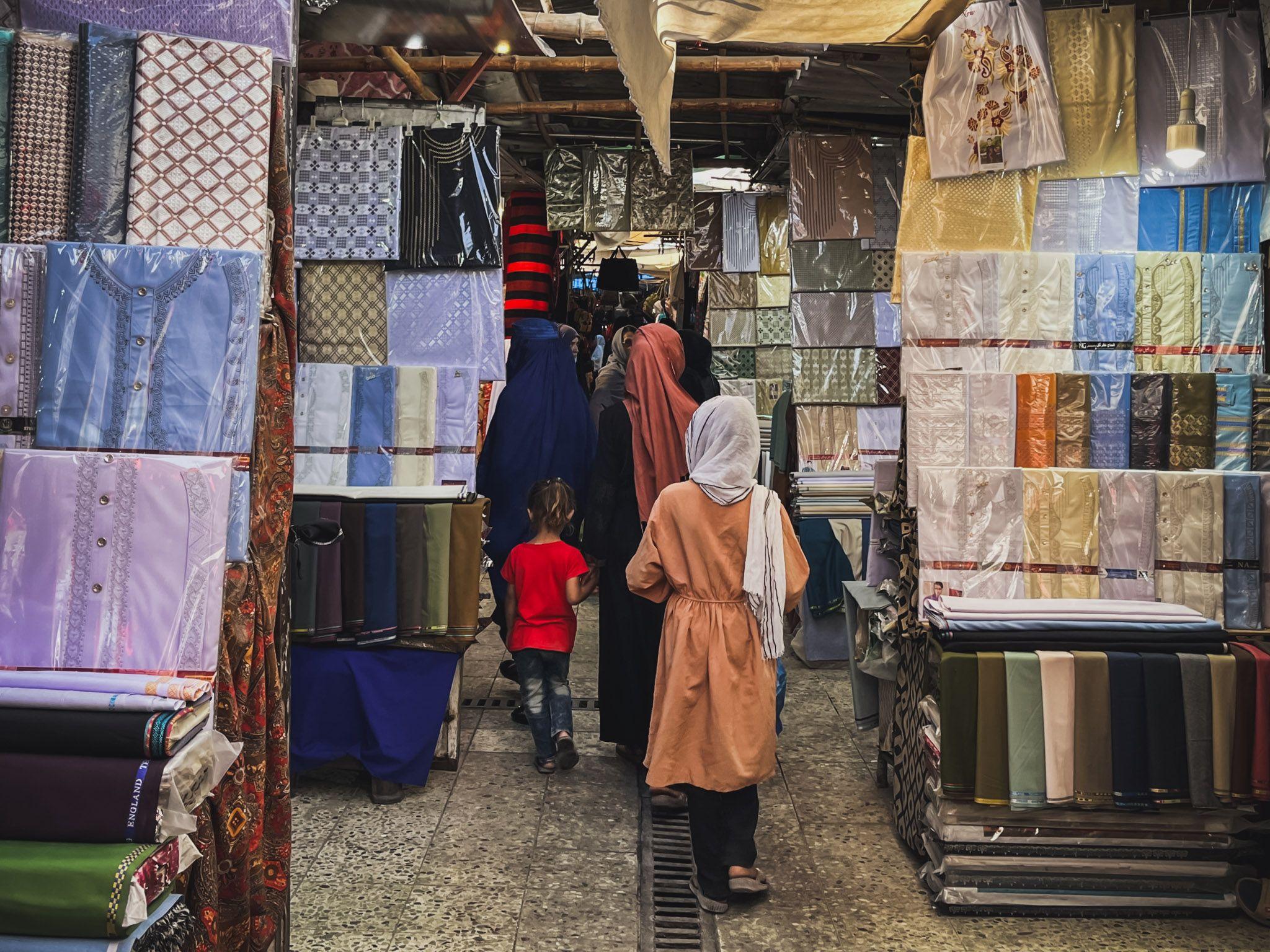
Market in Kabul
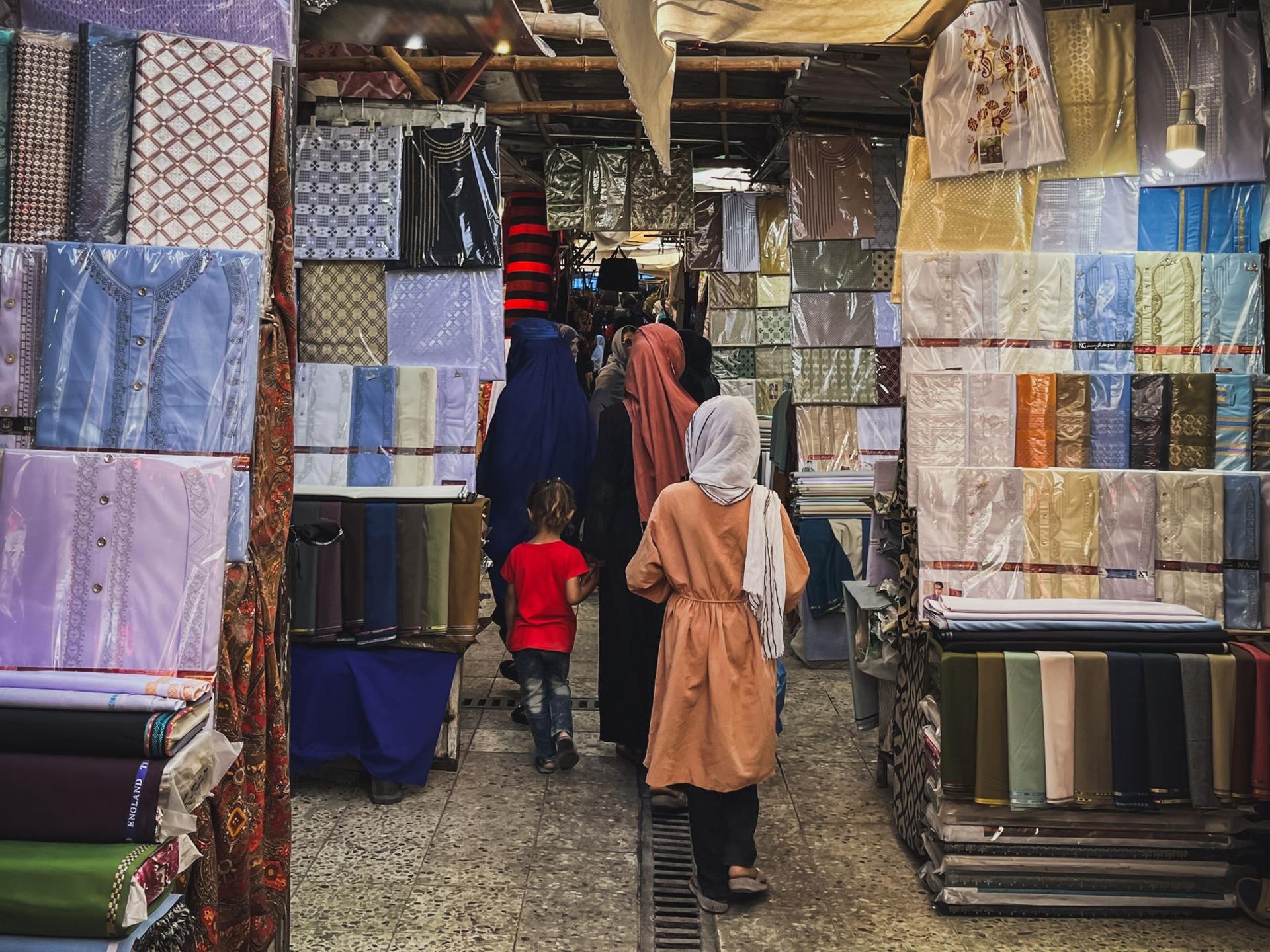
Market in Kabul
Afghan female journalists are still allowed to work, but they are under special pressure. Since May, they have had to cover their faces in front of the camera. The independent private broadcaster Tolo News deliberately hired new women last year. A silent protest.
Waheeda Hasan is part of the morning show. Outside the studio, the 28-year-old wears her turquoise headscarf loosely on the back of her head, strands of hair falling into her face. In front of the camera, however, only her eyes are visible. It feels terrible, she says. Her voice is unclear, it is warm and she has trouble breathing.
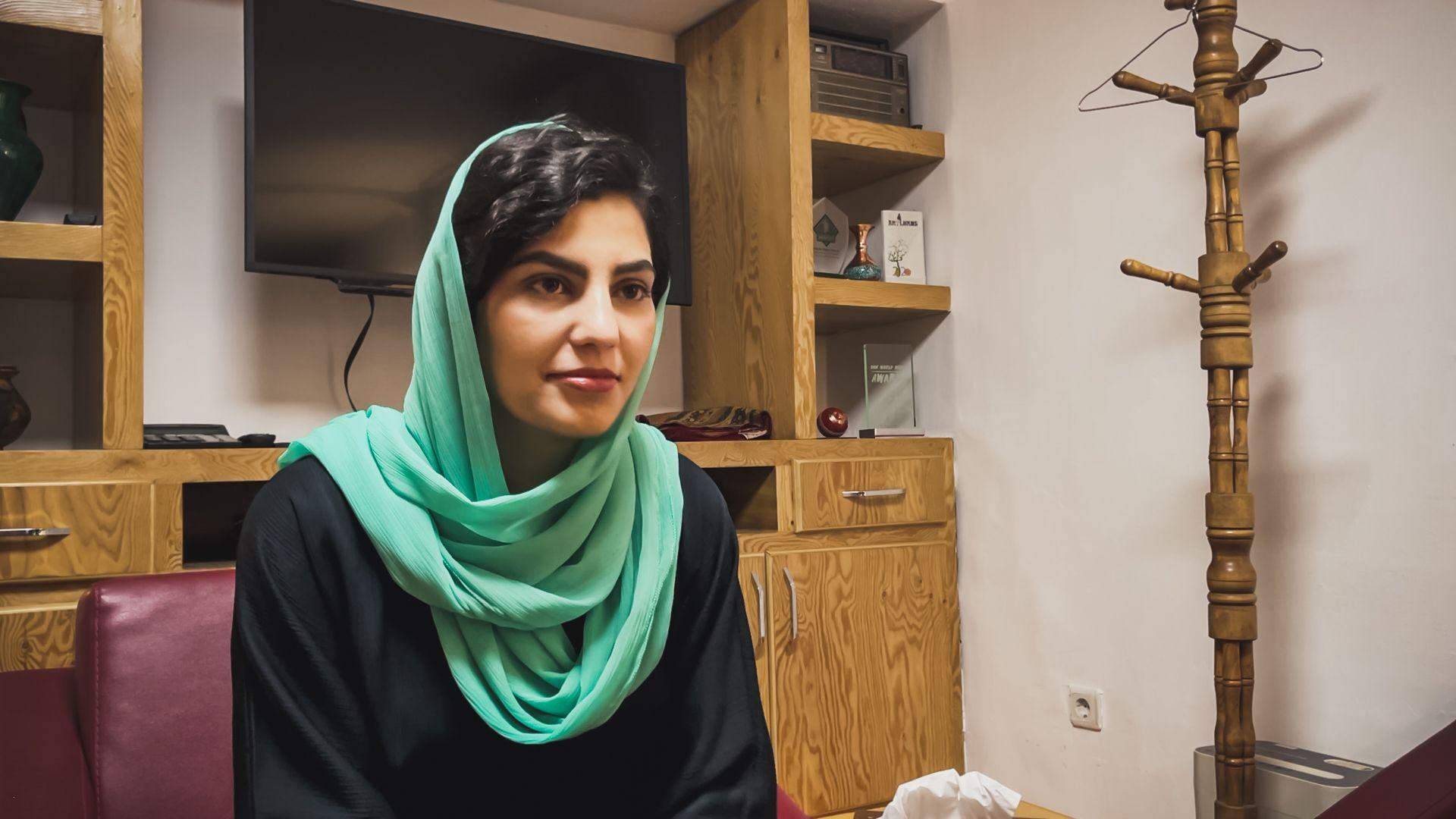
Waheeda Hasan, reporter for Tolo News
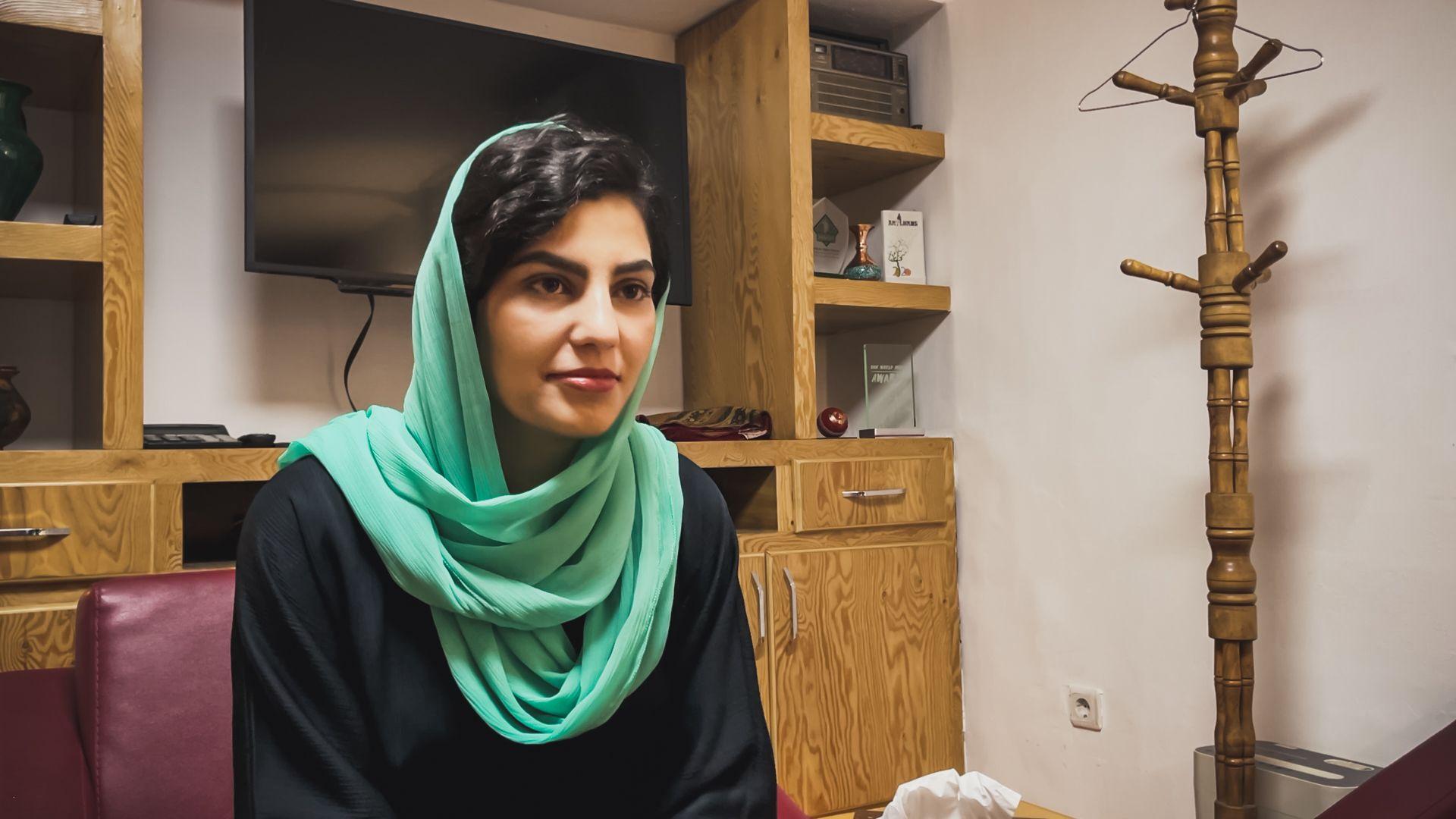
Waheeda Hasan, reporter for Tolo News
The Afghan media landscape was considered a great success of the Western military intervention. Now, however, numerous editorial offices and radio stations have stopped working, journalists have left the country in droves. Some reporters were arrested when they reported on women's protests, for example.
Zirak Faheem, deputy director of Tolo News, speaks of the "darkest period of journalism in history".
The worst, he says, is the legal uncertainty under the Taliban.
"There is no constitution, no media law, no freedom of information law," he says.
After terrorist attacks, reporters were often denied access; figures on wounded and killed were withheld by the Taliban, according to Faheem.
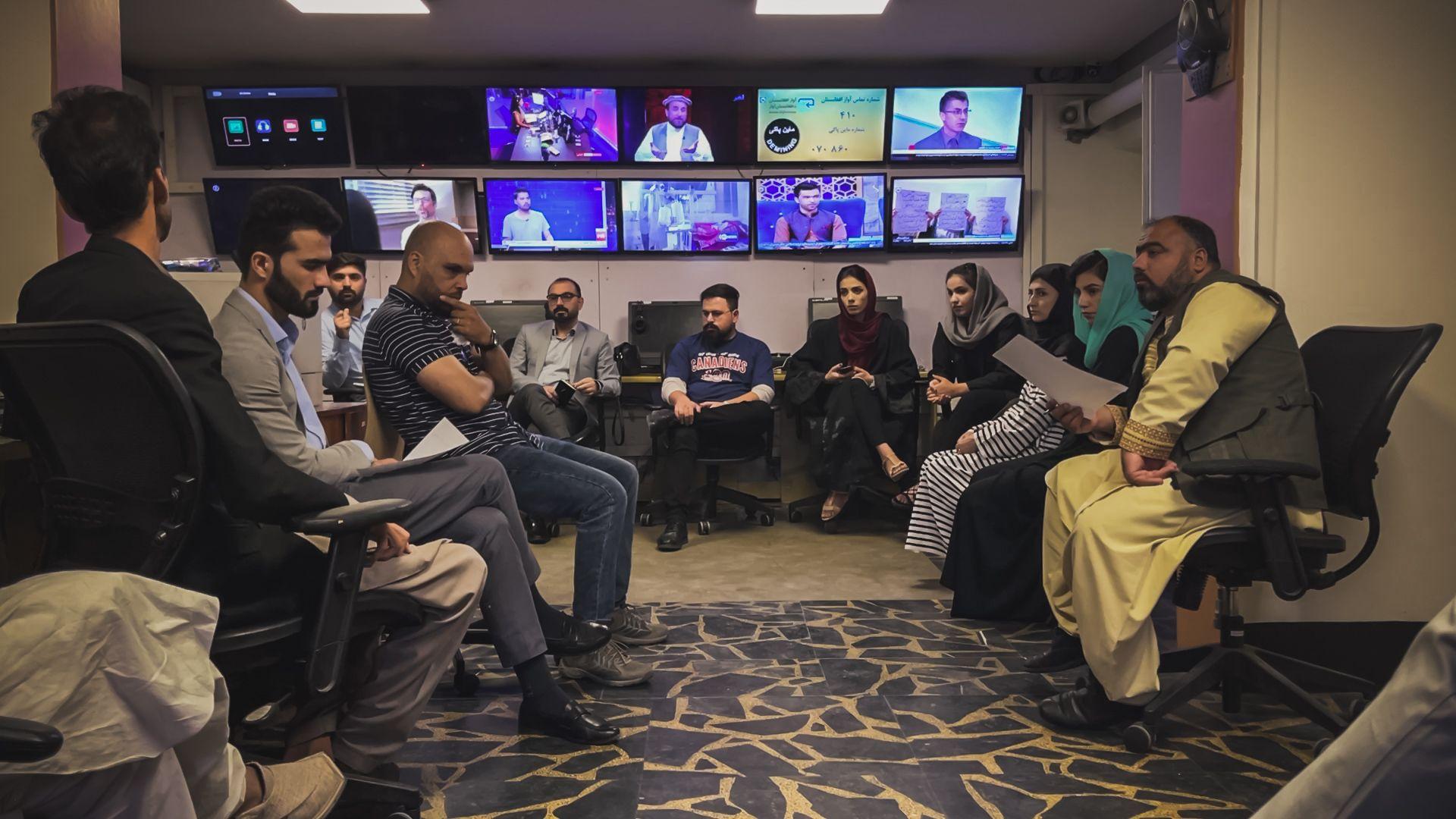
Editorial meeting at Tolo News
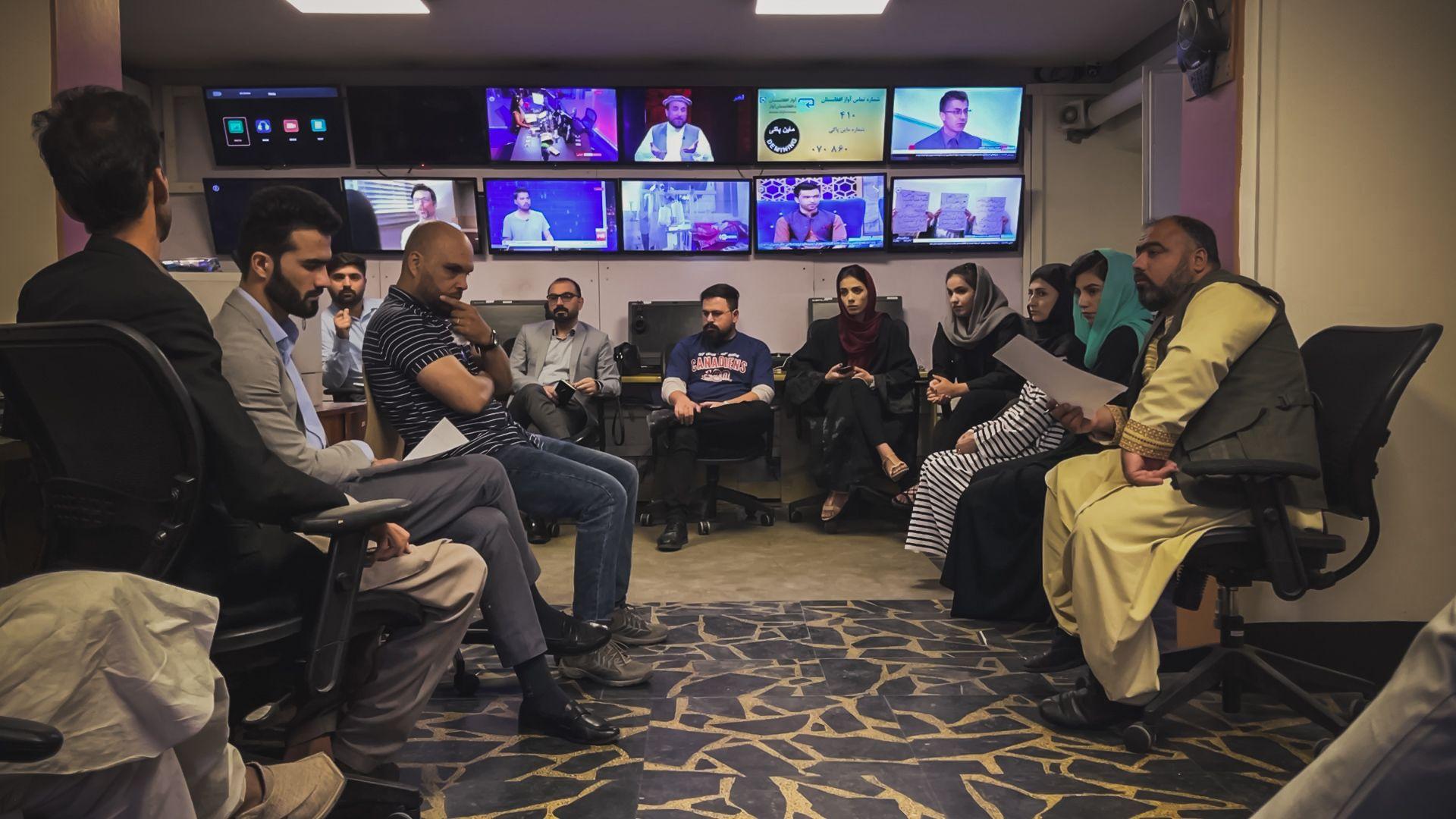
Editorial meeting at Tolo News
Female journalist Hasan keeps a diary. She hopes that one day her notes can be a warning to future generations that freedom cannot be taken for granted.
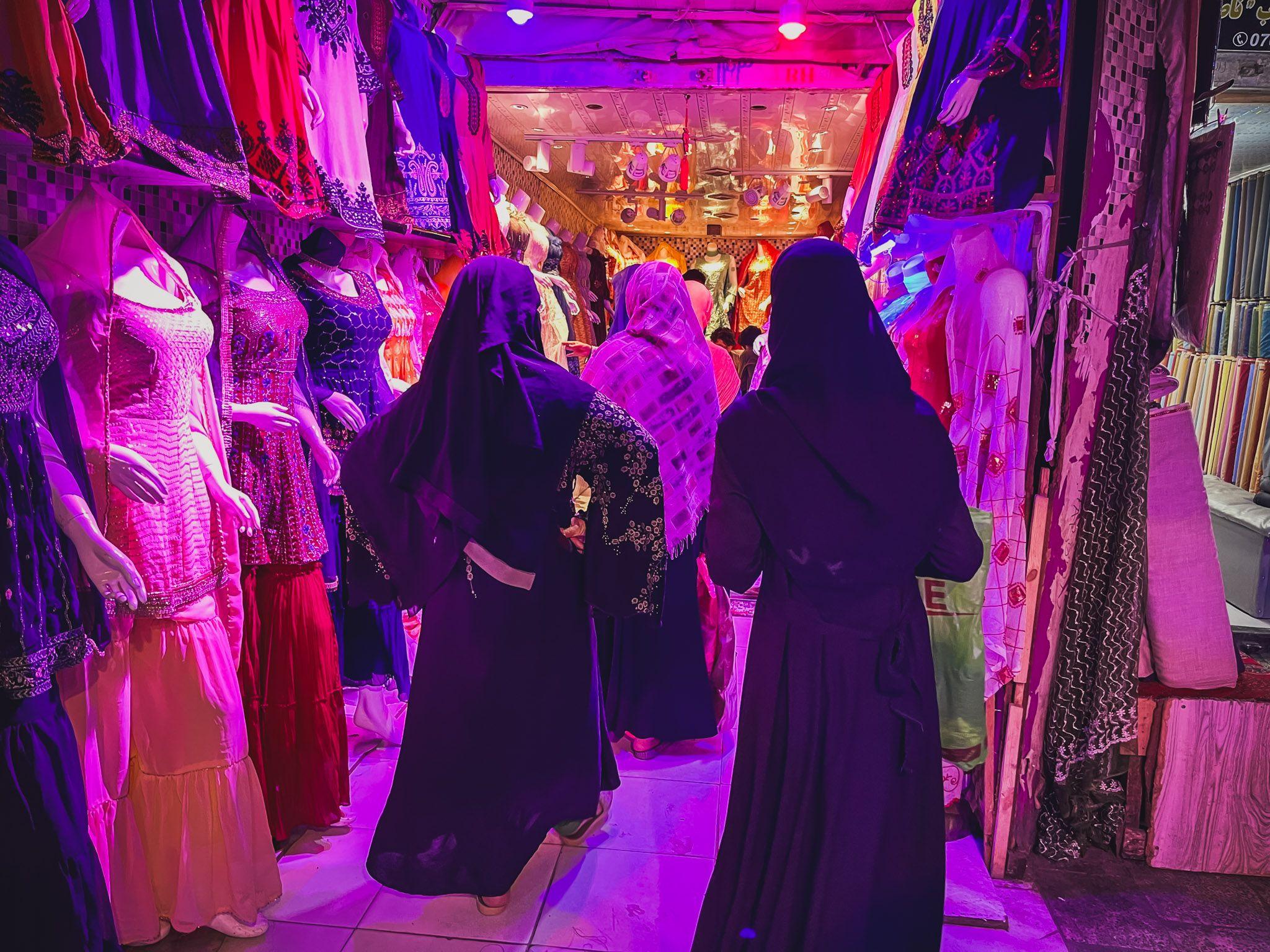
Street market in Kabul
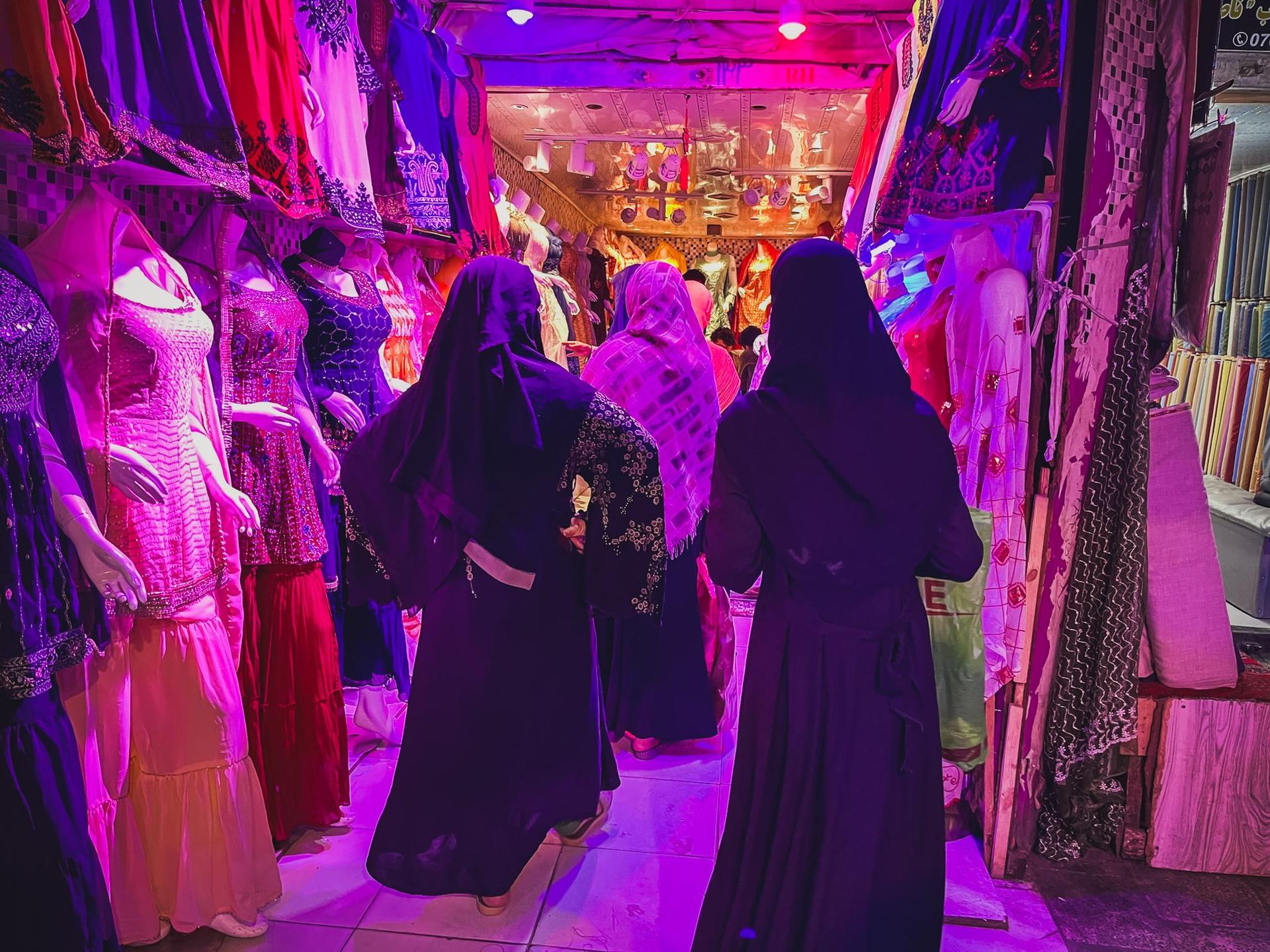
Street market in Kabul
Once, a Taliban religious scholar came to the station, she says. The best cover-up for women, he said according to her, was not to become journalists in the first place.
"I think their main goal is to remove us from the media," Hasan says. "They have taken away our identity. Our only fault is that we are women."
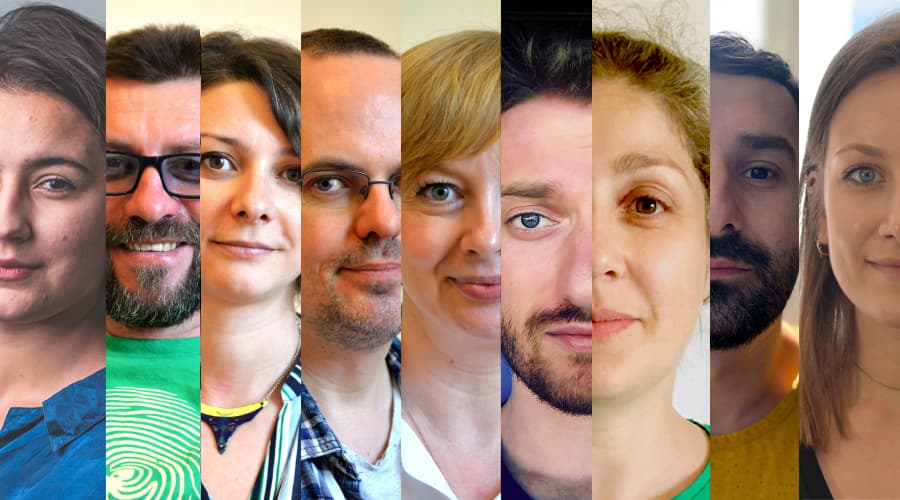
Avem nevoie de ajutorul tău!
Mulți ne citesc, puțini ne susțin. Asta e realitatea. Dar jurnalismul independent și de serviciu public nu se face cu aer, nici cu încurajări, și mai ales nici cu bani de la partide, politicieni sau industriile care creează dependență. Se face, în primul rând, cu bani de la cititori, adică de cei care sunt informați corect, cu mari eforturi, de puținii jurnaliști corecți care au mai rămas în România.
De aceea, este vital pentru noi să fim susținuți de cititorii noștri.
Dacă ne susții cu o sumă mică pe lună sau prin redirecționarea a 3.5% din impozitul tău pe venit, noi vom putea să-ți oferim în continuare jurnalism independent, onest, care merge în profunzime, să ne continuăm lupta contra corupției, plagiatelor, dezinformării, poluării, să facem reportaje imersive despre România reală și să scriem despre oamenii care o transformă în bine. Să dăm zgomotul la o parte și să-ți arătăm ce merită cu adevărat știut din ce se întâmplă în jur.
Ne poți ajuta chiar acum. Orice sumă contează, dar faptul că devii și rămâi abonat PressOne face toată diferența. Poți folosi direct caseta de mai jos sau accesa pagina Susține pentru alte modalități în care ne poți sprijini.
Vrei să ne ajuți? Orice sumă contează.
Share this

